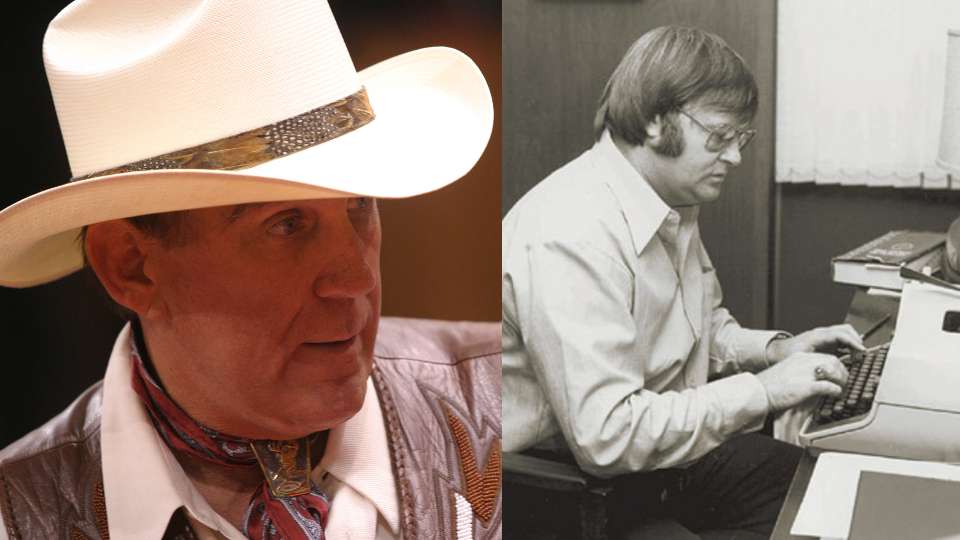
The Bassmaster Classic is the greatest tournament in all of fishing. The brainchild of B.A.S.S. founder Ray Scott and Bassmaster Magazine editor Bob Cobb, it has undergone some fine-tuning through the years, but it has always been the ultimate test of the best. Thirty-six men have won the 45 titles. Nine of them will be among the 55 anglers competing March 4-6 on Grand Lake Oâ the Cherokees out of Tulsa, Okla.
All captions: Ken Duke
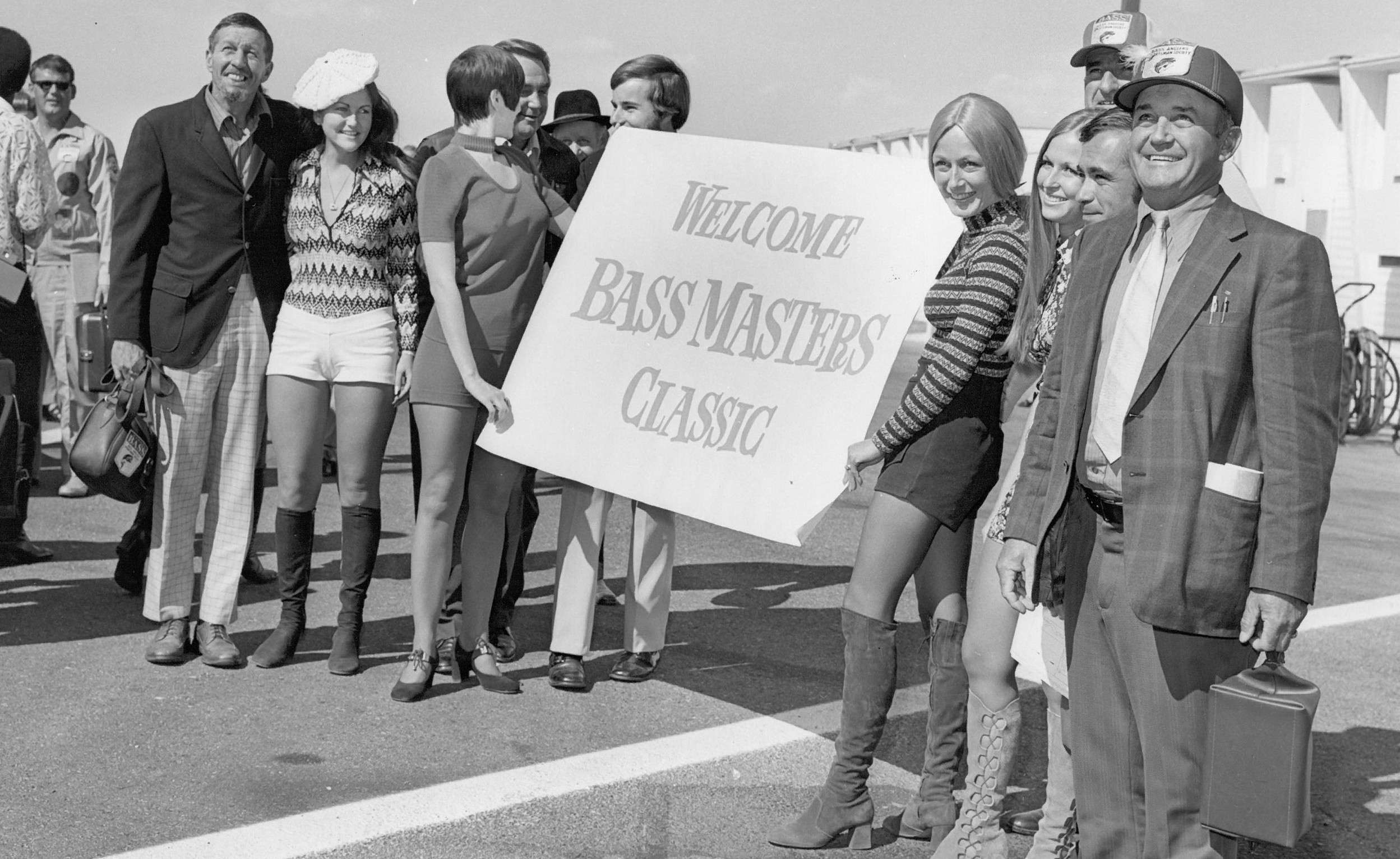
Though the trophy, the prize money and the name of the tournament have changed through the years â Bass Masters Classic, BASS Masters Classic and Bassmaster Classic (since 2002) â the feeling is the same. The winner has climbed the highest peak in the sport. He is the world champion.
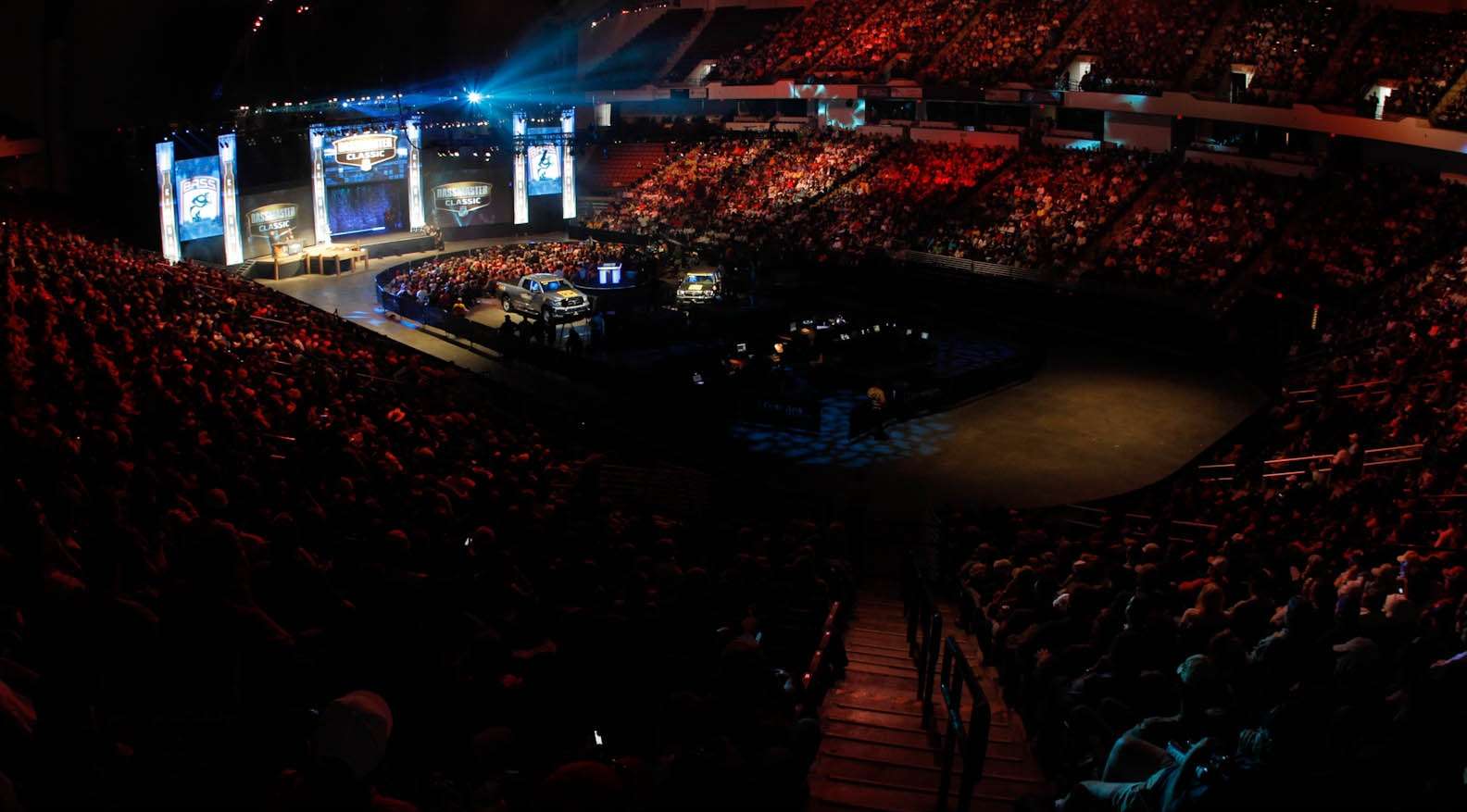
I thought it would be interesting â and fun â to track down the past winners of bass fishingâs greatest prize and ask them who they thought had the best chance to win in 2016. Most have stayed in touch with the sport and follow the Bassmaster Tournament Trail even though they may have retired from it decades ago. Almost all had opinions on who might win and why. I asked them for a list of five qualifiers they felt had the best chance to win â not necessarily in order. For the nine former champs in the 2016 field, I told them to feel free to pick themselves (five did). What follows is a little bit about Classics past that you probably didnât know and the picks of the former champs. Enjoy.
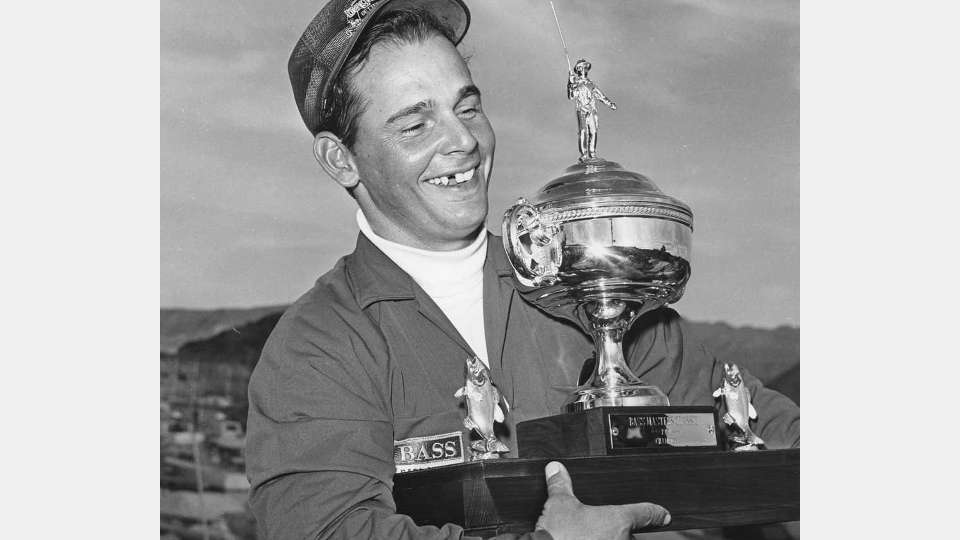
When the qualifiers for the inaugural GEICO Bassmaster Classic (then the âBass Masters Classicâ) gathered in Atlanta to board a Delta airliner, they had no idea where they were going. B.A.S.S. founder Ray Scott announced Lake Mead and Las Vegas, Nev., only after the plane was more than 10,000 feet in the air. Competitors fished from identical Rebel Fastback bass boats powered by 90hp MerCruiser inboard-outboard engines and valued at $4,000. They had a top speed of 37 mph. Anglers who caught the daily big bass were rewarded with poker chips from the Union Plaza Hotel Casino, which also served as tournament headquarters. Daily big bass paid $100 per pound and the $10,000 in prize money was winner-take-all!
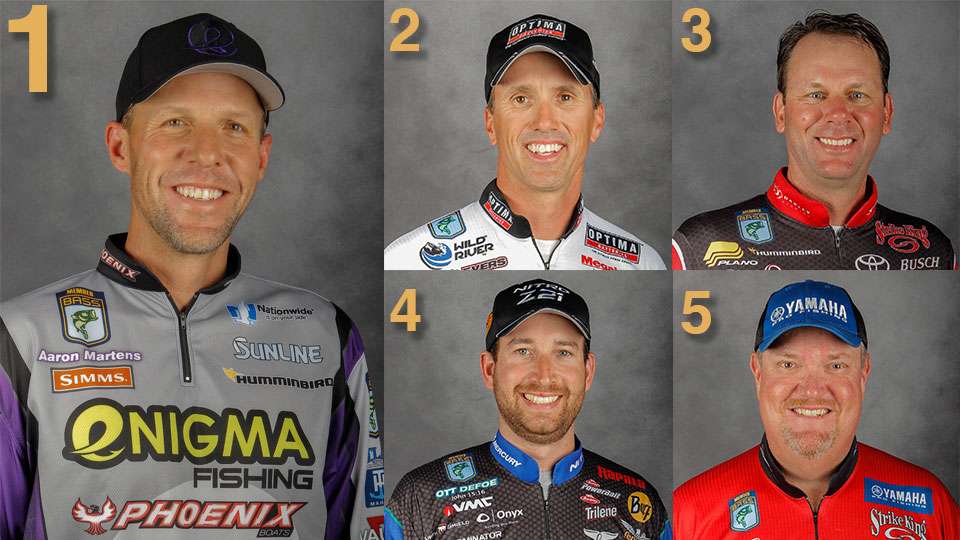
1. Aaron Martens
2. Edwin Evers
3. Kevin VanDam
4. Ott DeFoe
5. Mark Davis
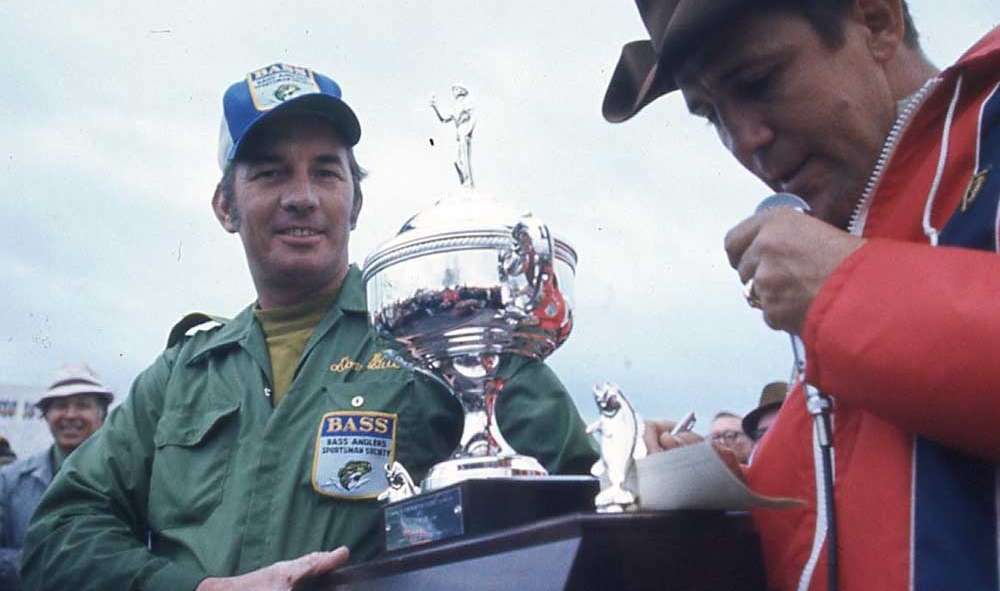
Butler was B.A.S.S.âs first member and first life member, giving B.A.S.S. founder Ray Scott a check for $100 early in 1968. He was also one of Scottâs âangels.â When Scott needed money for an early direct mail campaign, Butler came through with $10,000. Perhaps ironically, thatâs the exact amount he earned as the winner of the second Classic four years later. He bested the field using a lure of his own design â the Small Okiebug spinnerbait (or S.O.B.). The only other anglers to win on their own baits were Jack Chancellor (1985) and Casey Ashley (2015). After winning the 1972 Classic, Butler was invited onto the stage of the Grand Ole Opry and introduced to the crowd by Ernest Tubbs. Butler died in 2004.
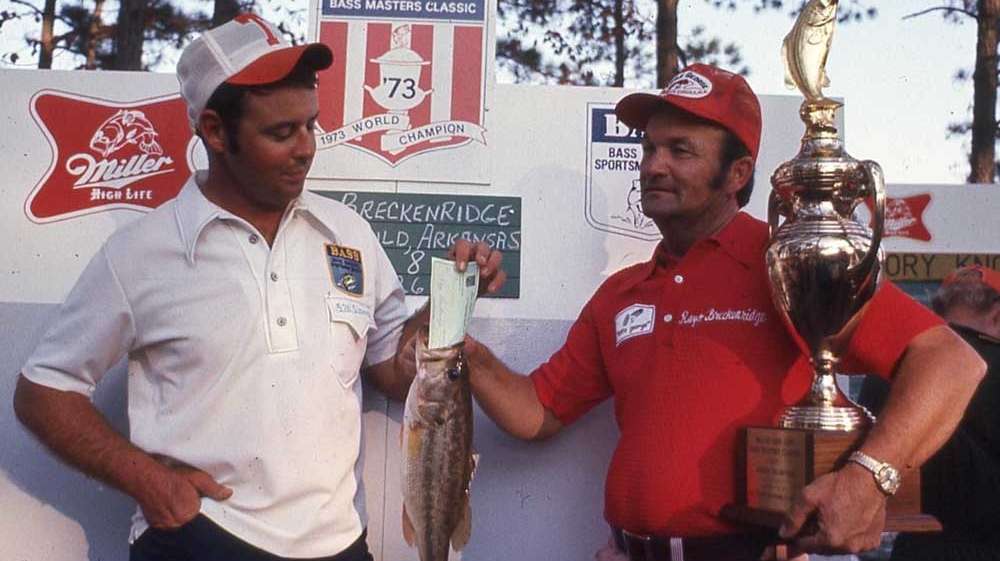
By this time, it was the âBASS Masters Classic,â and qualifiers were still fishing a mystery lake that was not revealed until their plane was in the air. Breckenridge and Don Norton both found a large group of bass in Fishing Creek, but rather than work the same area, they decided to divide it into two parts and flip a coin to determine who fished which section. Breckenridge won the coin flip and the tournament. Norton finished third. On the final day, Breckenridgeâs engine failed to start and he had to catch a ride with Roland Martin to make his check-in deadline. He used the $15,000 winner-take-all prize money on surgery to save his wifeâs eyesight. Breckenridge died in 1995.
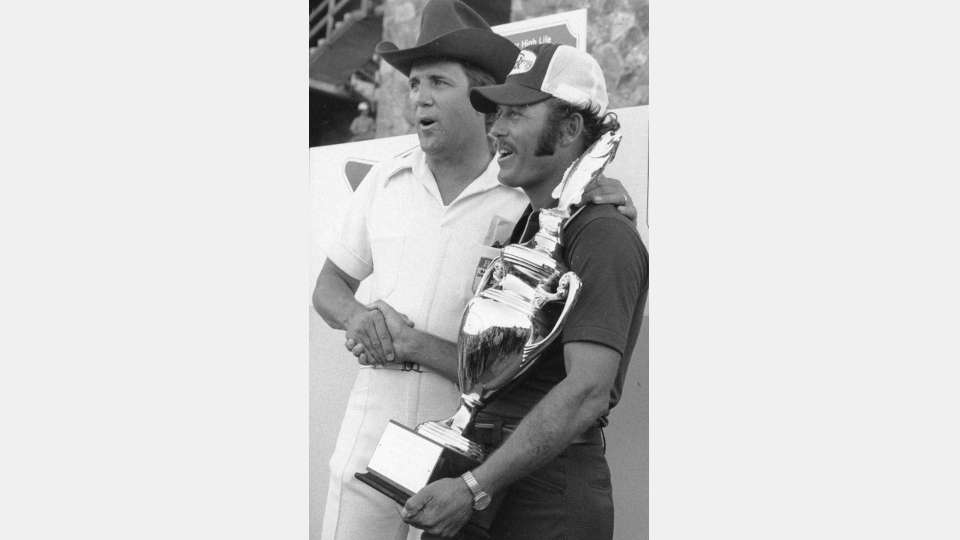
Miller High Life became the first Classic title sponsor. Martin was a rookie on the B.A.S.S. tour in 1974 and became the first angler to win a regular season B.A.S.S. tournament and the Classic in the same season. At the awards ceremony, he gave $1,000 of his $15,000 first-place prize money to the now defunct Bass Research Foundation. This was also the first Classic for Rick Clunn (he finished 16th out of a field of 29) and the first of his record 28 in a row. Tommy Martin is still fishing tournaments â including the Bass Pro Shops Bassmaster Opens â and guiding on Toledo Bend Reservoir in his native Texas.
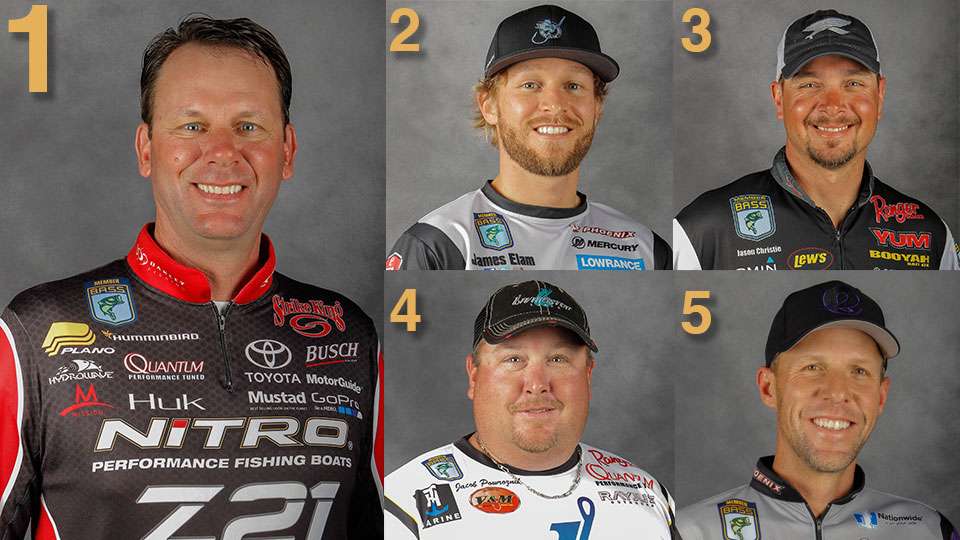
1. Kevin VanDam
2. James Elam
3. Jason Christie
4. Jacob Powroznik
5. Aaron Martens
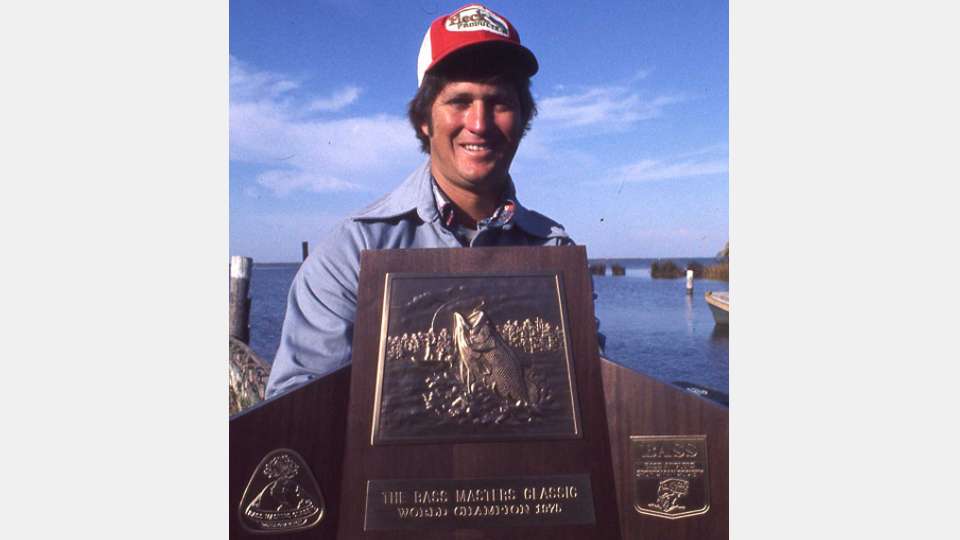
Hains, now the Director of Parks and Recreation in Broussard, La., still loves to fish and admits to âa soft spot in my heart for the tournament trail,â but he doesnât keep up with it since his retirement in 1999. He still ranks as the third youngest Classic champ in history (behind Stanley Mitchell and Bryan Kerchal), and he posted the fourth biggest comeback from a Day 2 deficit in history â he trailed by 6 pounds going into the final round. On Day 2 he found the winning pattern â a Fleck Weed Wader spinnerbait fished around wood in the midst of vegetation â after stopping to eat a sandwich during competition. He sat down, took a bite of the sandwich, saw a stickup in the vegetation and made a cast to it. As the bait neared the stick, he killed it and it was inhaled by a 6 pounder. Hains knew he was onto something and rode it to victory when Day 2 leader Paul Chamblee zeroes on the last day.
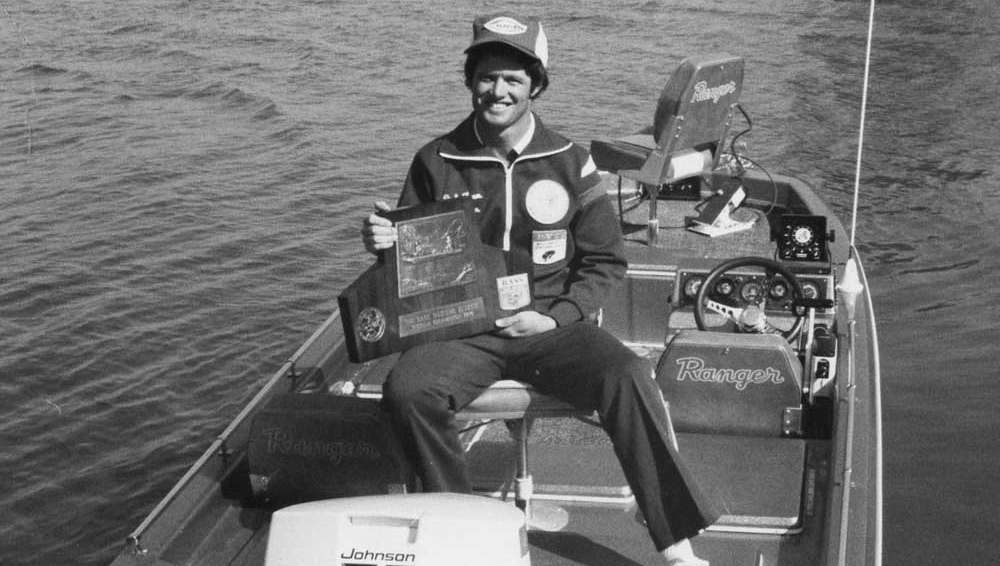
This marked the last of the mystery lake Classics, the first where the prize money was not winner-take-all and the first of Clunnâs four championship titles. Because each Classic boat was equipped with a CB radio, fans who were tuned in could follow the action ⦠but the boats were given secret identification numbers so only B.A.S.S. staff knew who caught what. On Day 2, Clunn set the record for heaviest single day catch that still stands â 10 bass weighing 33-5. On the same day, Ricky Green established the lunker record (8-9) that would last until 2006. Clunnâs winning weight of 59-15 was the heaviest in Classic history until he broke it in 1984.
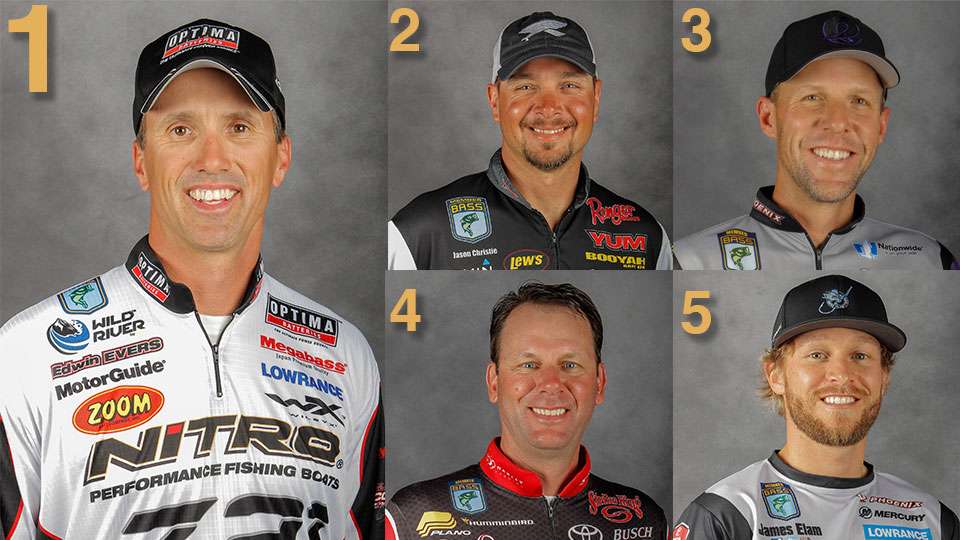
1. Edwin Evers
2. Jason Christie
3. Aaron Martens
4. Kevin VanDam
5. James Elam
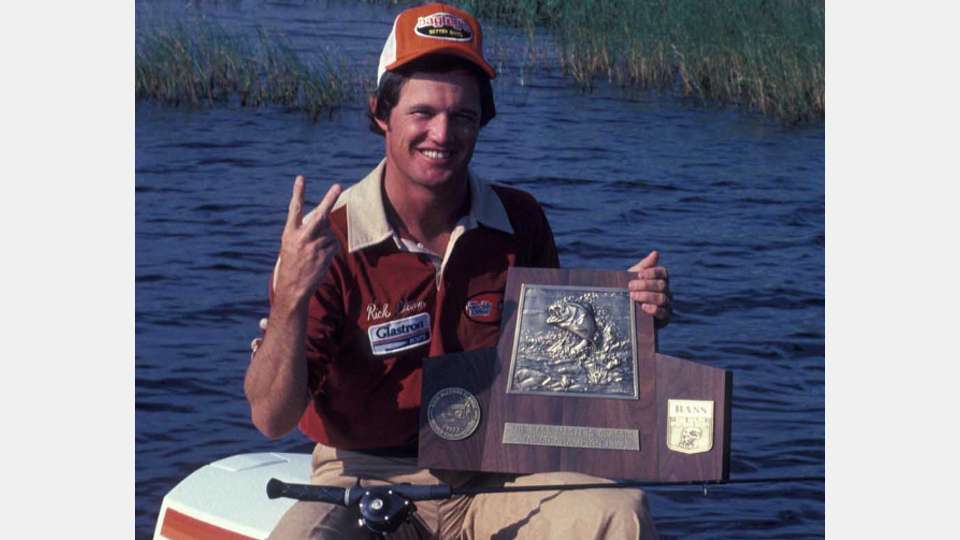
They say you canât win the Classic on the first day, but Clunn basically did exactly that in 1977 at the first Classic not held on âmysteryâ waters. Competitors launched in fog, and Clunn was unable to find the spot where he wanted to start (this was pre-GPS and he missed it by about 100 yards). He made the most of the situation, though, catching a 7-7 on his second cast and launching himself into the early lead with 19-10. Clunn would hold off a hard-charging Larry Nixon to win with 27-7, becoming the first angler to win back-to-back titles (Kevin VanDam, 2010-11, is the other). Between Day 2 of the 1976 Classic and the final round of the 1977 event, Clunn led the world championship for five consecutive competition days.
For Clunnâs 2016 Classic picks, go back to the 1976 Classic.
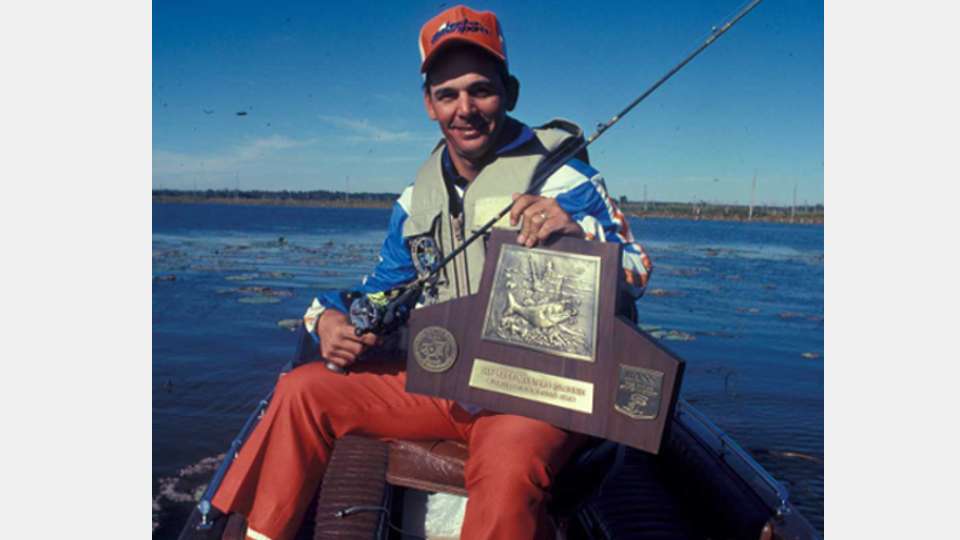
Murray became the second angler to win multiple Classics (Rick Clunn was the first in 1976 and 1977). His key bait was a Rex Spoon, but it was tough to keep down in the water column while reeling it fast enough to get bites, so he clipped a Hildebrandt spinner in front of the spoon. Murray’s winning bait (sometimes called the âArkansas rigâ or âsalad rigâ) had been devised by 14-time Classic qualifier Ricky Green. Green showed it to 1974 champ Tommy Martin, who showed it to David Owens at a Florida tournament. That angler showed it to Murray. All four qualified for the 1978 Classic, and all four posted Top 13 finishes. Clunn lost a big bass in the final round that might have given him his third consecutive Classic win. Shorty Evans became the oldest Classic competitor at 65 years, 9 months and 2 days. He finished 22nd out of 25 anglers.
For Murrayâs 2016 Classic picks, go back to the 1971 Classic.
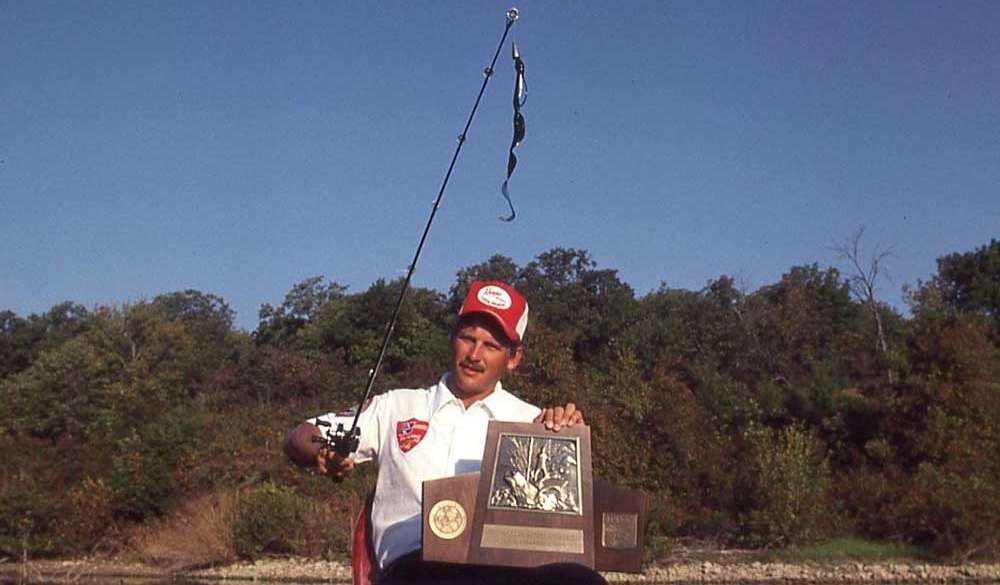
Parker found a flippinâ bite in practice, but didnât bring a flippinâ rod to the tournament because he didnât have a carrier that was long enough. Luckily, he was able to borrow a rod from Gary Klein. Parker built up a big lead on Day 2 and didnât even need to catch a bass in the final round to hold onto the win. Basil Bacon was second â 3 pounds back of Parker â despite zeroing on the first day. Competitors were restricted to just 10 pounds of baits and Parker was over the limit when the tackle boxes were weighed. Ray Scott and tournament director Harold Sharp removed baits until Parkerâs box was under 10 pounds, but took too many. In bringing the total back up to the limit, Parker was able to save the Mannâs Jelly Worms he used to win the championship.
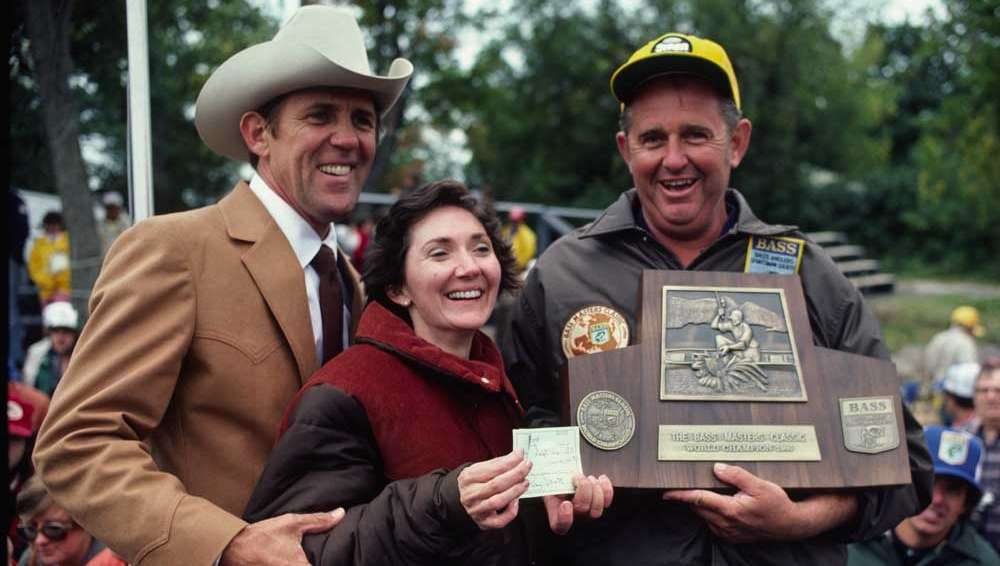
Ray Scott would frequently introduce Dowden as a silver medalist in track from the 1952 Olympics, though it wasn’t true. The 1980 BASS Masters Classic was Dowden’s first win at either the club or professional level. He dominated the tournament (winning by 10 pounds) not only because he found productive areas and a bait that caught the right bass (a dark jig and pig), but also because he discovered the right bait to avoid catching pesky and time-consuming northern pike. The St. Lawrence River is the farthest north the Classic has ever been held. Today, Dowden runs a real estate agency in Many, La.
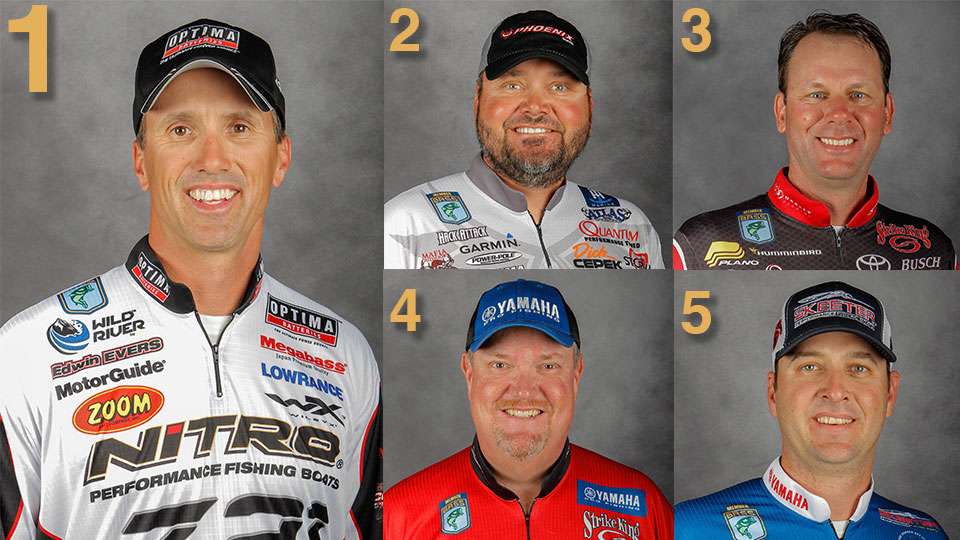
1. Edwin Evers
2. Greg Hackney
3. Kevin VanDam
4. Mark Davis
5. Todd Faircloth
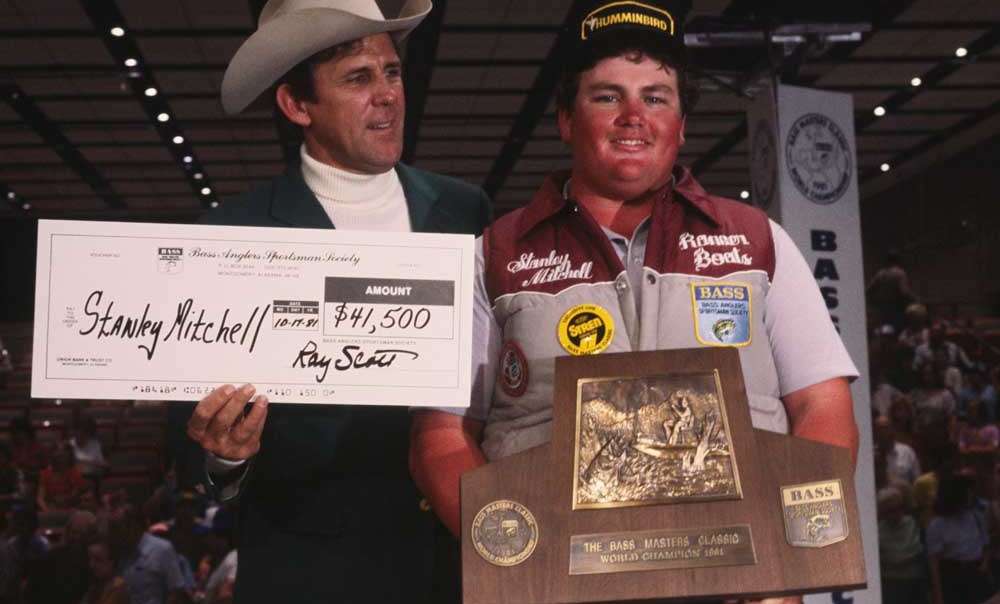
At just 21, Mitchell is the youngest angler ever to win the Classic, and heâll remain so even after the 2016 championship since no one in the field is young enough to break his record. Even with college anglers in the field every year, it seems as though Mitchellâs mark is going to be around for a long, long time since few anglers make it to the Classic at such a young age. The â81 Classic was historic for other reasons, too. It was the first Classic weigh-in to be held indoors (Montgomery Civic Center) and the first to offer a âClassic Outdoor Show.â According to Bassmaster Magazine, âmore than 50 exhibitors in the new Classic Outdoor Show displayed the latest in boats, motors, rods, reels, lures and electronic aids.â An estimated 4,000 spectators attend the final weigh-in. It was also the first time that every angler in the championship was paid; those ranking 21st through 42nd (last) got $500 each. And believe it or not, all Classic anglers were required to fish with DuPont Stren, the âofficial line of the 1981 BASS Masters Classic.â
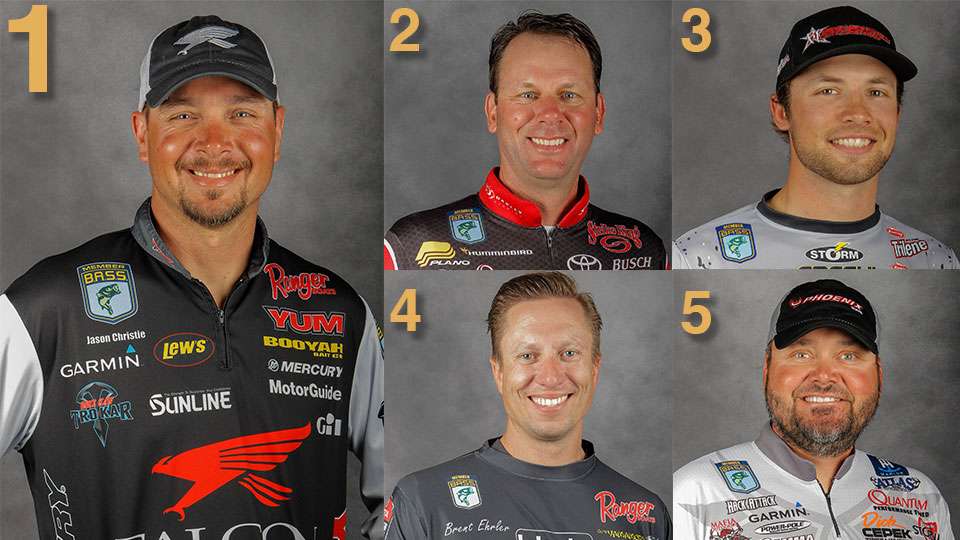
1. Jason Christie
2. Kevin VanDam
3. Brandon Palaniuk
4. Brent Ehrler
5. Greg Hackney
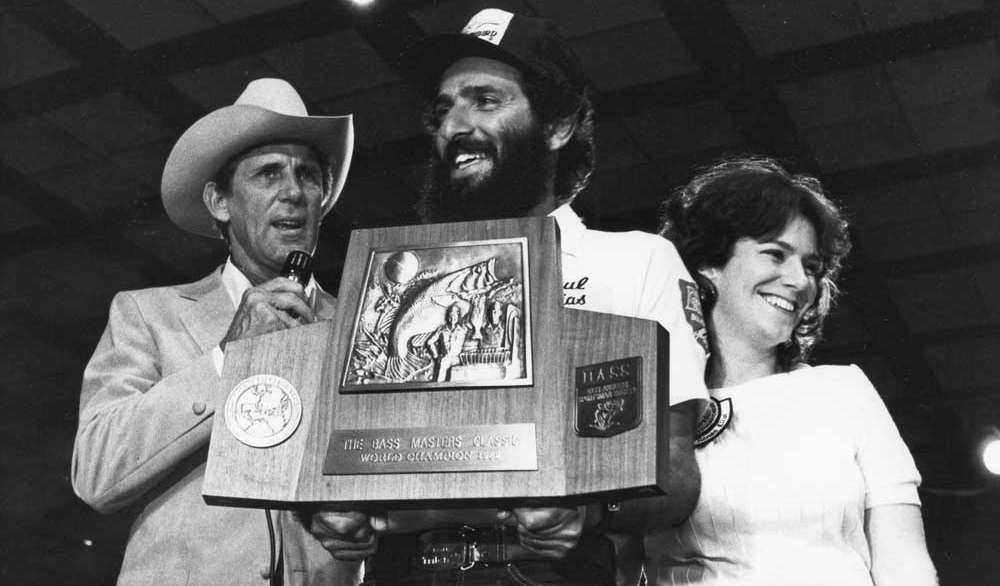
Elias has made his mark on the sport in the many ways, perhaps none more significant than winning the 1982 Classic. A few years ago he brought the castable umbrella rig to prominence and at Falcon Lake he set a tournament weight record that may never be equaled, but in â82 he showed the bass world âkneeling and reelingâ â a deep-diving crankbait technique in which the angler fishes from his knees and submerges his rod tip under the surface to get a few extra feet of depth out of his diving baits. It worked for Elias. Those critical extra feet of depth made the difference and carried him to victory. The 1981 and â82 Classics were both on the Alabama River out of Montgomery, marking the first time the championship was at the same venue in back-to-back years.
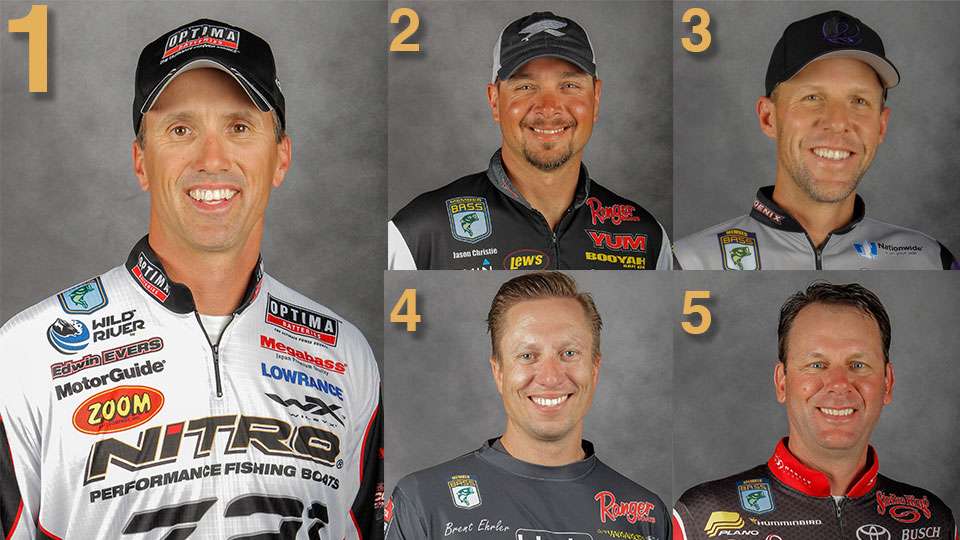
1. Edwin Evers
2. Jason Christie
3. Aaron Martens
4. Brent Ehrler
5. Kevin VanDam
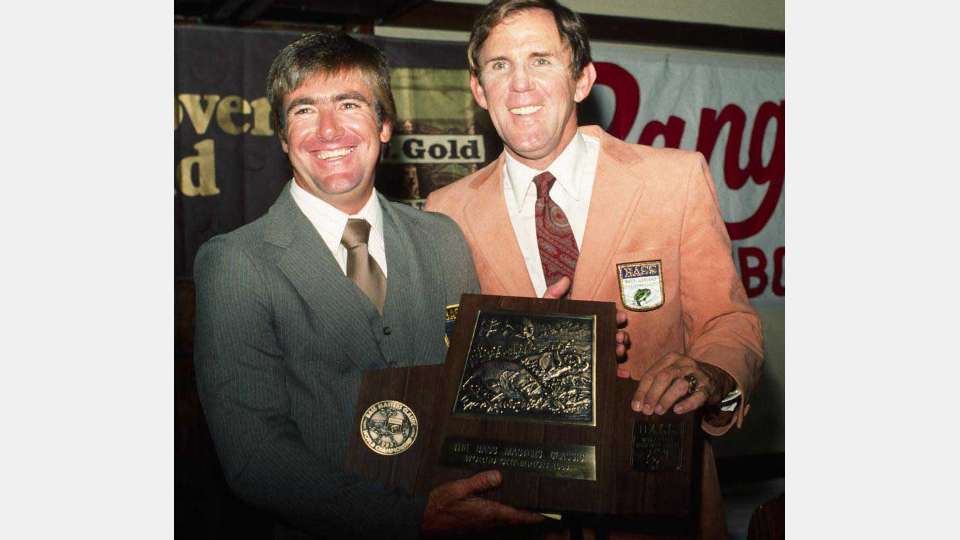
After being a fall tournament for the first 12 years of its existence, the Classic moved to the summer in 1983 and to the Ohio River. The combination was brutal, but Larry Nixon made it work, managing just 18 pounds of bass over three days â a record that would stand until the next time the Classic visited the Ohio River. Nixon recently said that âwinning the 1983 Classic was a tough one.â His Day 3 catch was just three bass weighing 2-11, but it was enough. He recently called his victory a âgrindâ and the âgreatest win of my 39-year career.â That tournament was also notable because it marked the first time an African-American qualified for the Classic. Alfred Williams, a U.S. Postal Service clerk from Jackson, Miss., finished 10th.
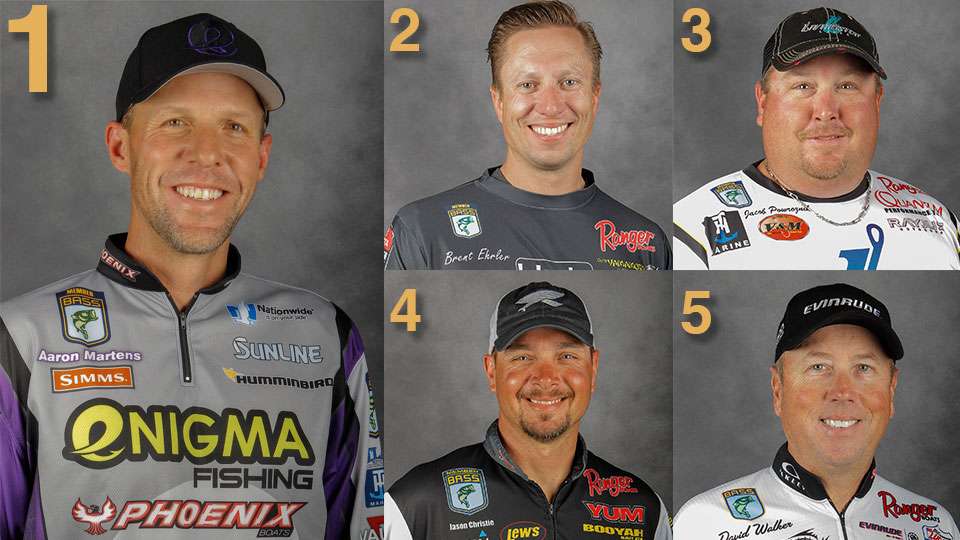
1. Aaron Martens
2. Brent Ehrler
3. Jacob Powroznik
4. Jason Christie
5. David Walker
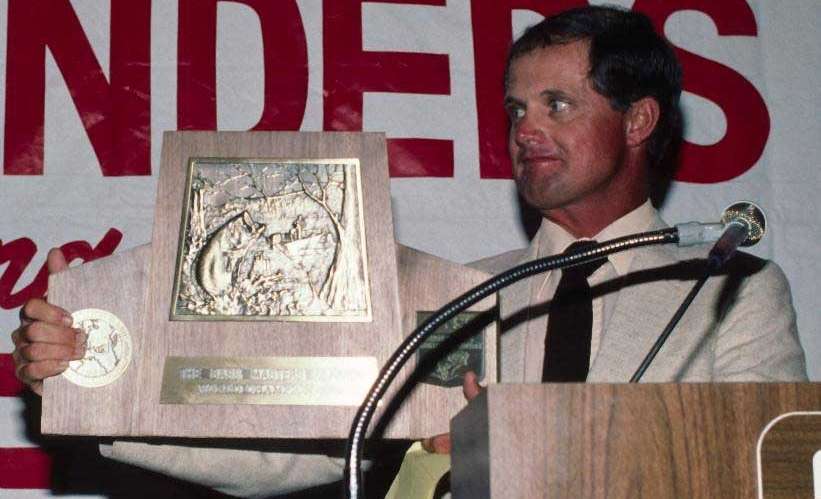
Dominance! Thatâs the word to describe Clunnâs performance at the 1984 Classic. On all three days of the event he weighed in the heaviest catch. Add it all up and you get the largest margin of victory in B.A.S.S. history â not just Classic history. Clunn won by 25 pounds, 8 ounces! Victory was never in doubt; it was only a question of by how much. To add some political star power to the proceedings, Clunn, Ray Scott and Harold Sharp were joined on stage for the final weigh-in by a couple of future U.S. Presidents â George H.W. Bush (then Vice President to Ronald Reagan) and Bill Clinton (then Governor of Arkansas). It is probably the most iconic moment in the history of the sport.
For Clunnâs 2016 Classic picks, go back to the 1976 Classic.
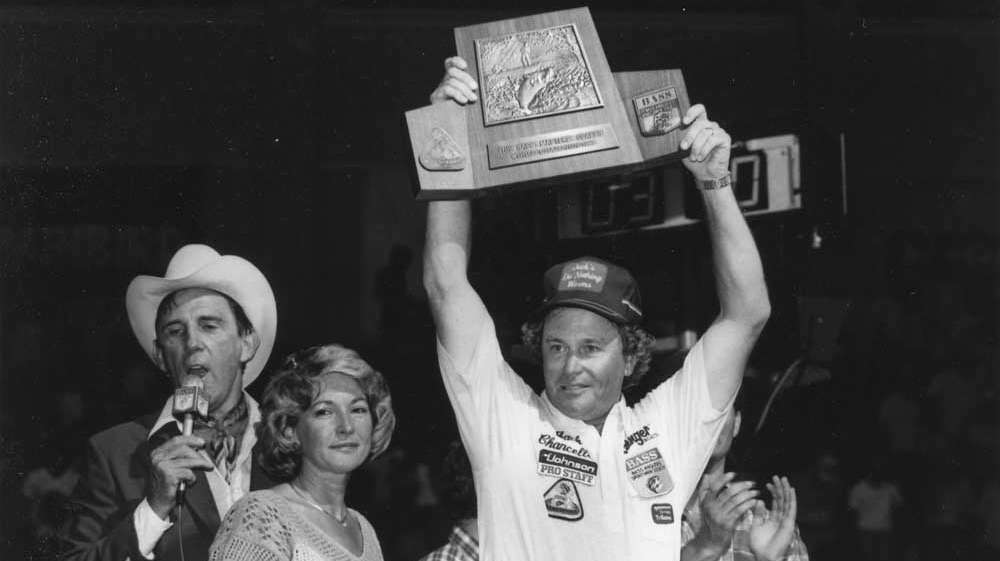
Chancellor very nearly didnât launch on the first day of the 1985 Classic. On the way to the ramp, the vehicle in front of his lost its tow hook and line; it smashed through Chancellorâs windshield and left pieces of glass in his eye. Everyone was telling him to go to the hospital, but he wanted to fish â he was on some good bass! Luckily, there was a nurse in the crowd who offered to take a look at his eye. She managed to remove the glass and flush his eye out so that he could compete. With the win, Chancellor became the second champion to win using a lure that he manufactured (Don Butler was the first in 1972). He began pouring his âDo-Nothingâ worm in the early 1980s. He Carolina rigged the small worm for almost all of his catch, making the C-rig a national phenomenon in the process. Chancellor is now retired in Phenix City, Ala., but still follows the performances of his old friends on the tournament trail.
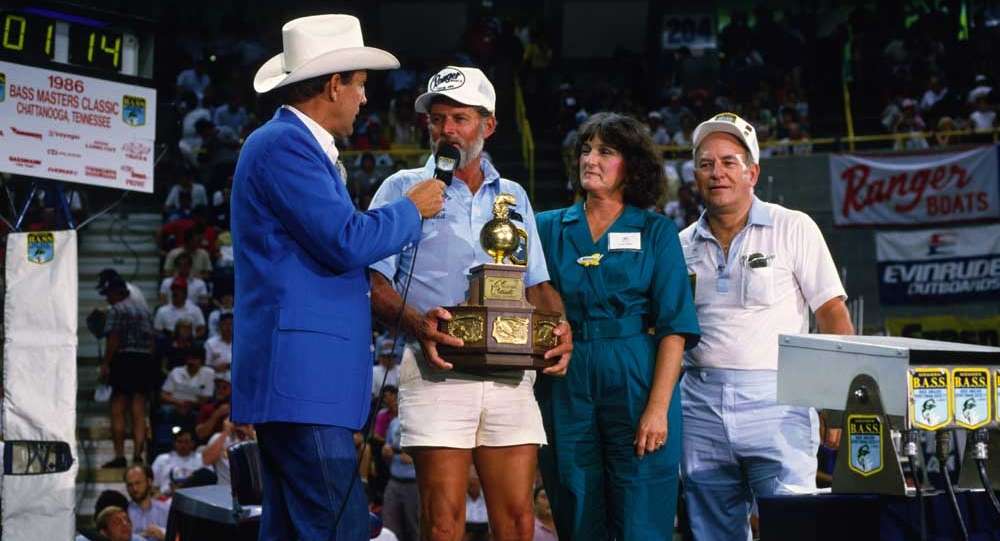
Reed got a late start in his career on the tournament trail. He was in his 40s before he hit the circuit, but he made the most of it. With his win at the 1986 Classic, Reed eclipsed Rayo Breckenridge as the oldest champ. He was 51. That record was broken in 2000, but Reed had struck a blow for âolderâ tournament anglers everywhere. Because his career was relatively short, the most famous fishing Reed may be the late Classic champâs wife, Vojai, who became the first woman to fish in a B.A.S.S. tournament (1991). Charlie Reed died in 2013.
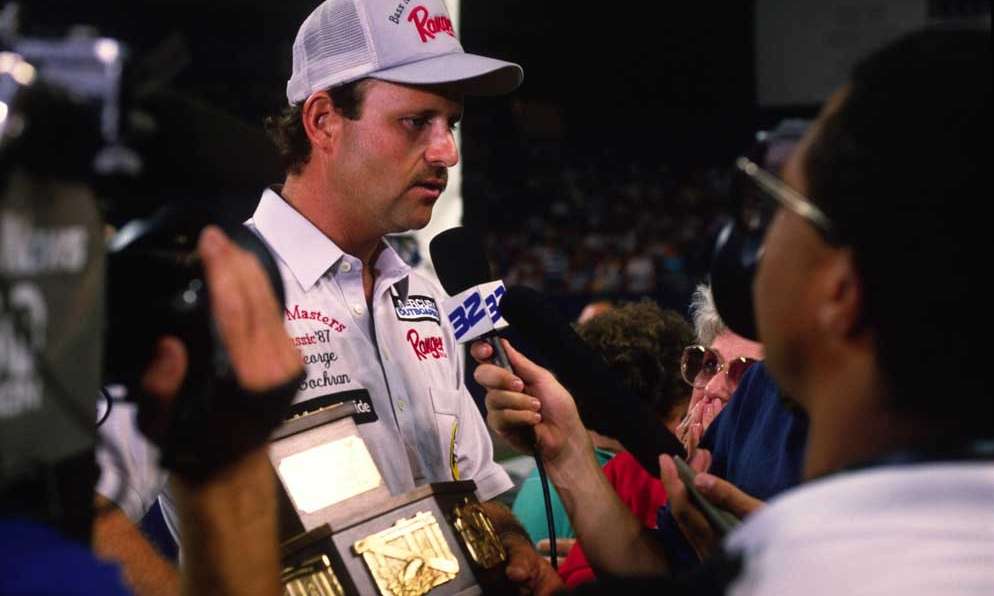
The first time the Classic was fished on the Ohio River (1983), catches were historically small and hard to come by. Larry Nixon won that year with just 18-1, but 1987 was even tougher. It took Cochran just 15-5 to win. Gary Klein caught four bass on the first day that weighed 7-4 (3 ounces less than the leader), but lost all credit for it because he was nine minutes late coming through the locks. He finished 19th. Cochran and Zell Rowland (who finished sixth) were fishing the same grass bed, but didn’t know it. On the second day, Rowland caught a seven-bass limit and left the area. Cochran began fishing it a short time later and caught seven more. Those were the only limits of the entire tournament â the toughest in Classic history up to that time.
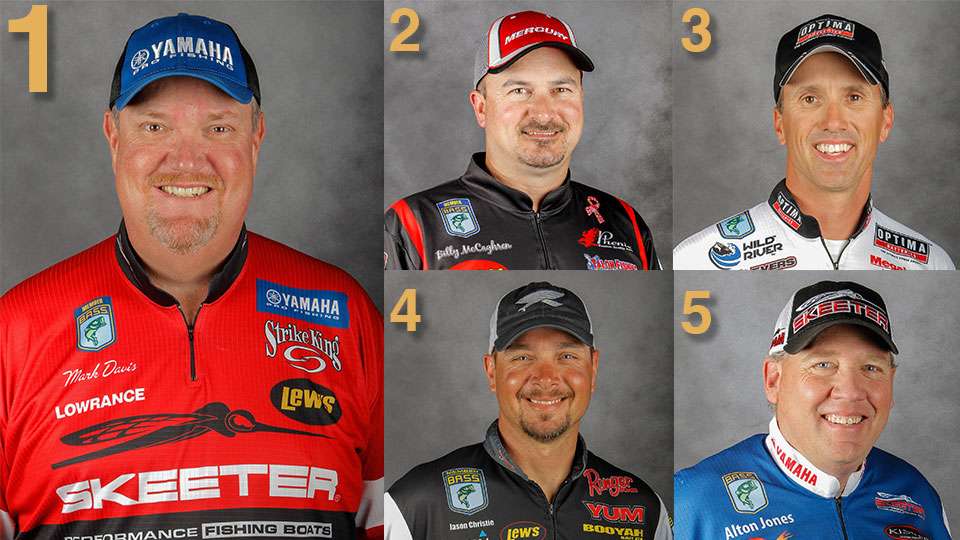
1. Mark Davis
2. Billy McCaghren
3. Edwin Evers
4. Jason Christie
5. Alton Jones
Cochran is proud of his Arkansas roots (born and raised in Little Rock), admitting that he picked Davis and McCaghren because of their Natural State connection and saying heâd pick other Arkansas anglers were there any in the field. Arkansas is the only state to send a qualifier to the Classic in every year of its existence (1971-2016).
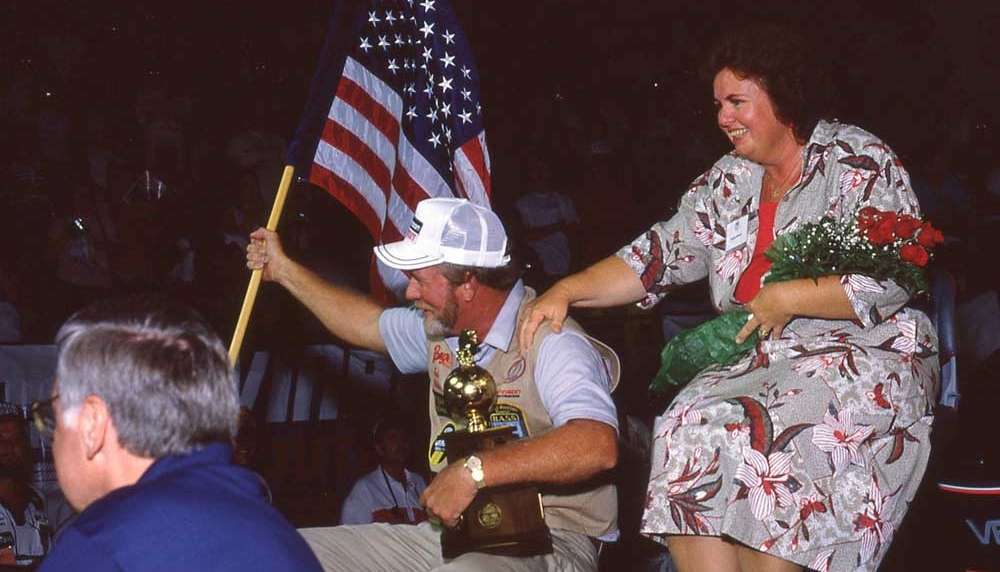
This marked the first of three straight Classics on the James River, the home water and very nearly the backyard of 2000 Classic champ Woo Daves. Daves never won any of the James River championships, but he put in a good showing every time. Guido Hibdon won this Classic in the same year that his son Dion (another eventual Classic winner) was a Classic rookie. The tournament was supposed to be all about the tides, but Hibdon paid them little attention, noting that when the tide was up the bass would be on one side of a laydown. When the tide was out, theyâd be on the other. By not overthinking things, he proved his genius and earned the title. In his Bassmaster Magazine coverage of the tournament (Nov. 1988, p. 40), senior writer Steve Price referenced eighth-place finisher Mark Davis as a âfuture winner.â At that time, Davis had yet to win a B.A.S.S. event. His first B.A.S.S. win would be the 1995 Classic. How does Price know those things?
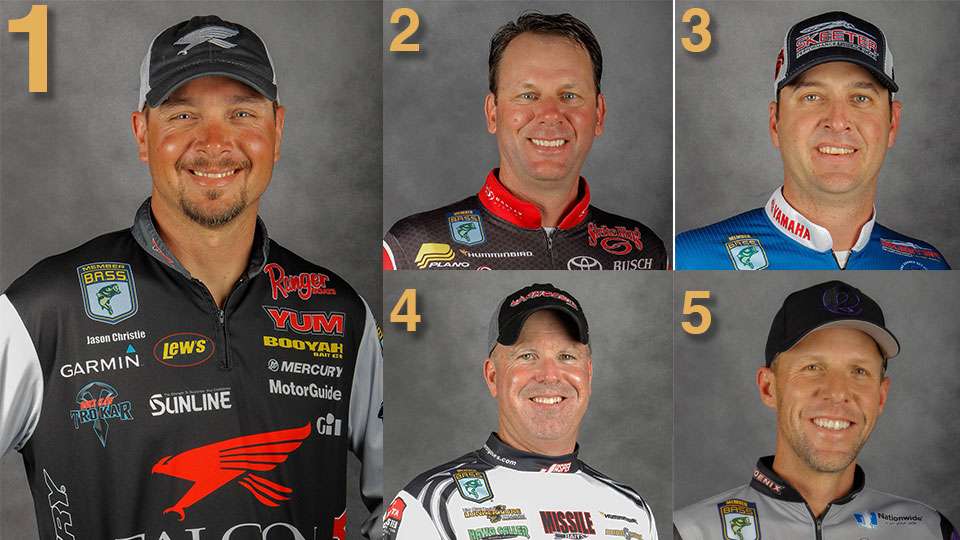
1. Jason Christie
2. Kevin VanDam
3. Todd Faircloth
4. Chad Morgenthaler
5. Aaron Martens
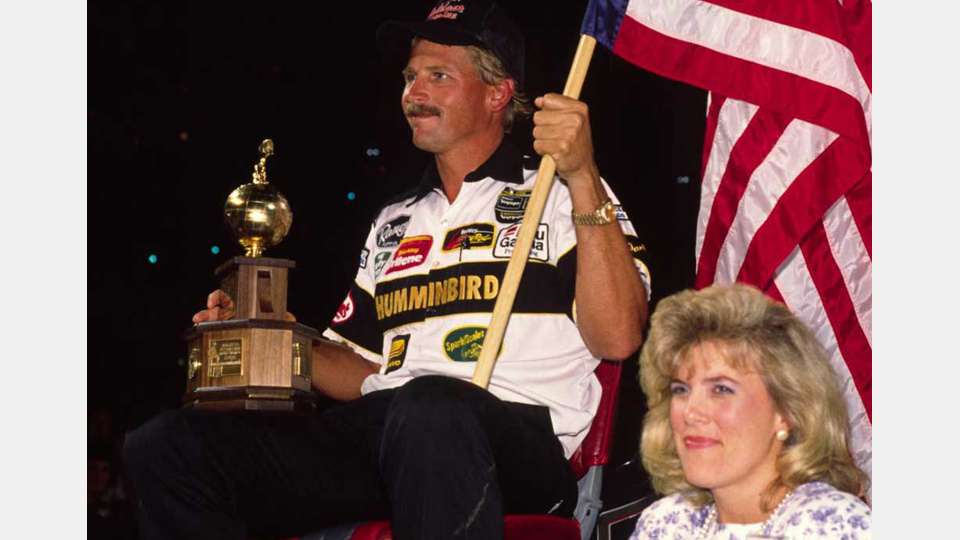
The 1989 Classic is known as much as the one Jim Bitter lost as it is the second Classic that Hank Parker won. Bitter led the first two days and even posted the heaviest catch each day, but the wheels came off in the final round. On Day 3, he had the winning fish on board, but it slipped through his grasp and fell back into the water. He lost by 2 ounces. It was not the first time an angler led the first two days but didnât win, and it wouldnât be the last. For Parker, his second Classic title provided an exclamation point to a stellar career. He retired from competitive fishing to pursue his television efforts full-time and to spend more time with his family.
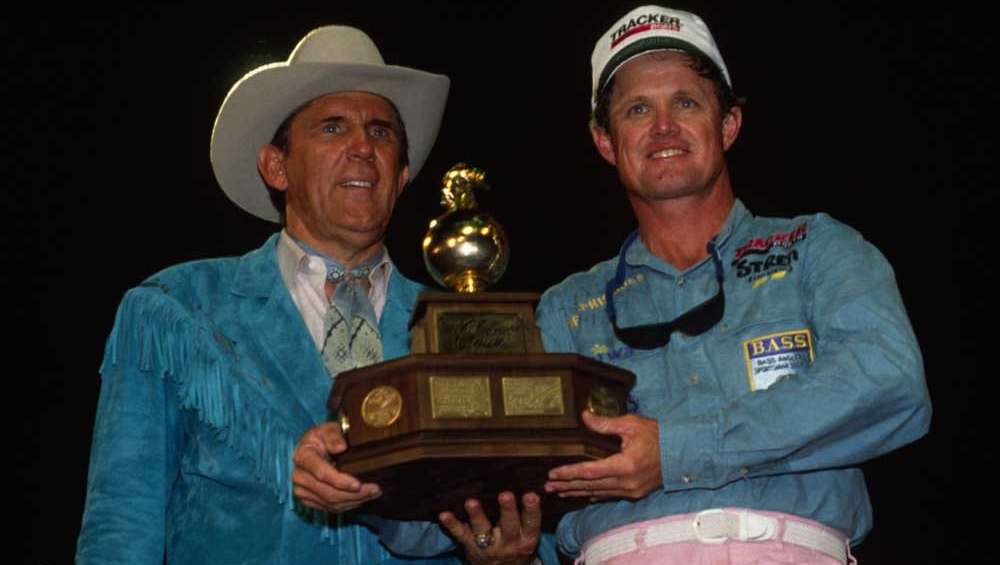
By 1990, Clunn had already won a couple of fall Classics (1976 and 1977), a summer Classic (1984), a mystery lake Classic (1976) and two non-mystery lake Classics (1977 and 1984). He had held on to win (1977), dominated like never before or since (1984) and even shared the stage with political giants (1984). But he had never come from back in the pack to win in dramatic fashion. He saved that for 1990, and it was well worth the wait. When the final round started, he was in 10th place and trailing by nearly 10 pounds. When it was over, he had won by almost 7 pounds â an incredible swing of 16 pounds, 9 ounces and one that may never be equaled. Because Clunn trailed by so much and because his observer had no way to notify B.A.S.S. staff of the day he was having, there are no images of his legendary catch. Clunnâs fourth Classic title was one for the ages.
For Clunnâs 2016 Classic picks, go back to the 1976 Classic.
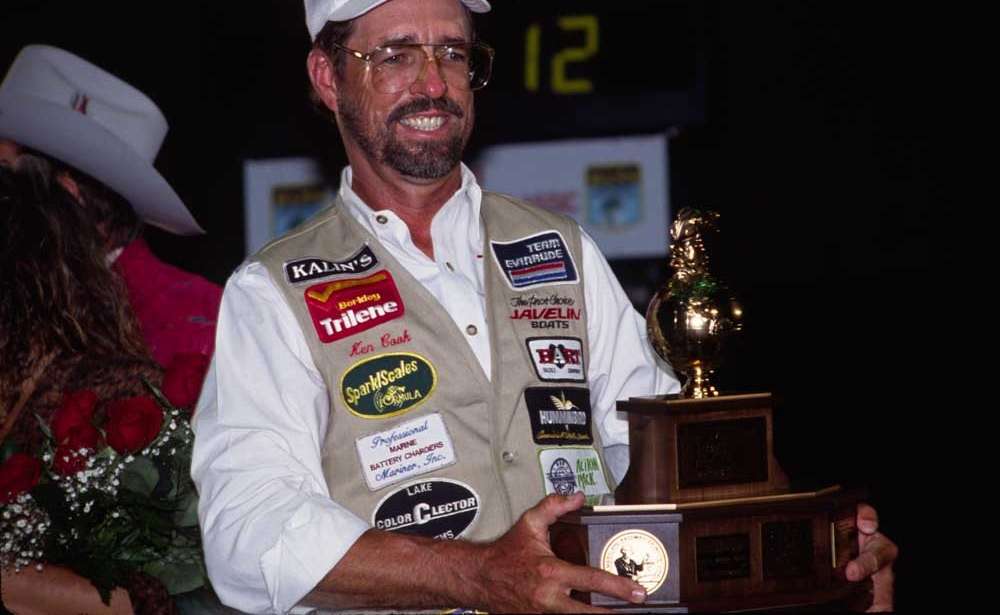
For the third time in a row and fourth time in Classic history, an angler led for each of the first two days, but didnât win. It happened in 1975, 1989, 1990 and again in 1991 when Zell Rowland felt the sting of close, but no cigar. Ken Cook was an Oklahoma fisheries biologist by trade and the first biologist to make it big on the tournament trail. His 3-ounce victory over Randall Romig was second closest in history to that time and still ranks third. Cook had a reputation as one of the best spinnerbait anglers in the business, so it was only fitting that he won with a Hart Throb spinnerbait of his own design. He died unexpectedly in January 2016 of a heart attack.
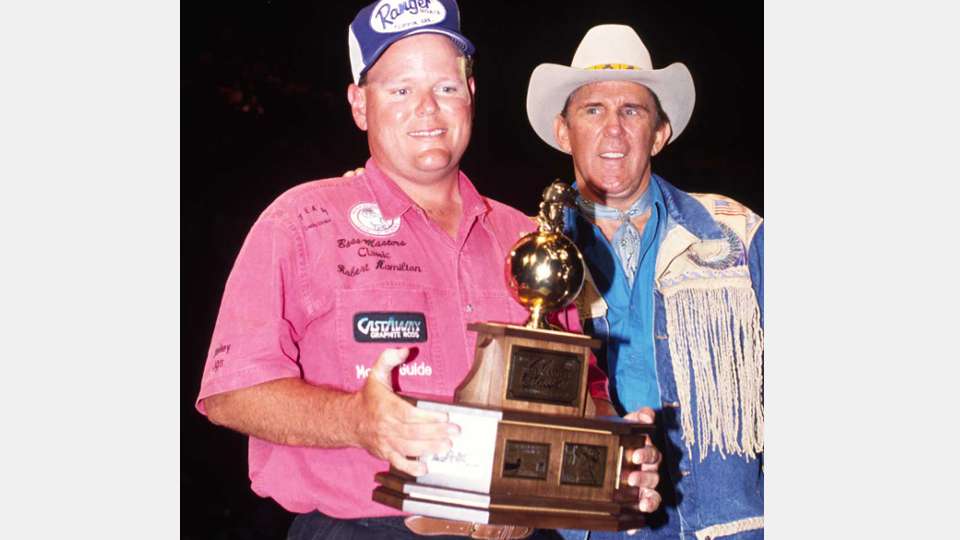
Until Boyd Duckett won the 2007 Classic in his home state of Alabama, the championship seemed to suffer from a home state jinx. But back in 1992, Robert Hamilton had broken the jinx ⦠sort of. Though at the time of his win he was a Mississippi resident, Hamilton had lived in Birmingham â just a short drive from Logan Martin. Though he hadnât fished it often, he was the only angler in the field with experience on the lake and it paid off. Months before the tournament, while driving across the lake on I-20, Hamilton had a premonition. âSomething told me I was going to win the Classic,â he said, âeven though at that time I hadnât even qualified for it. That feeling never left me, either, even during the tournament itself.â
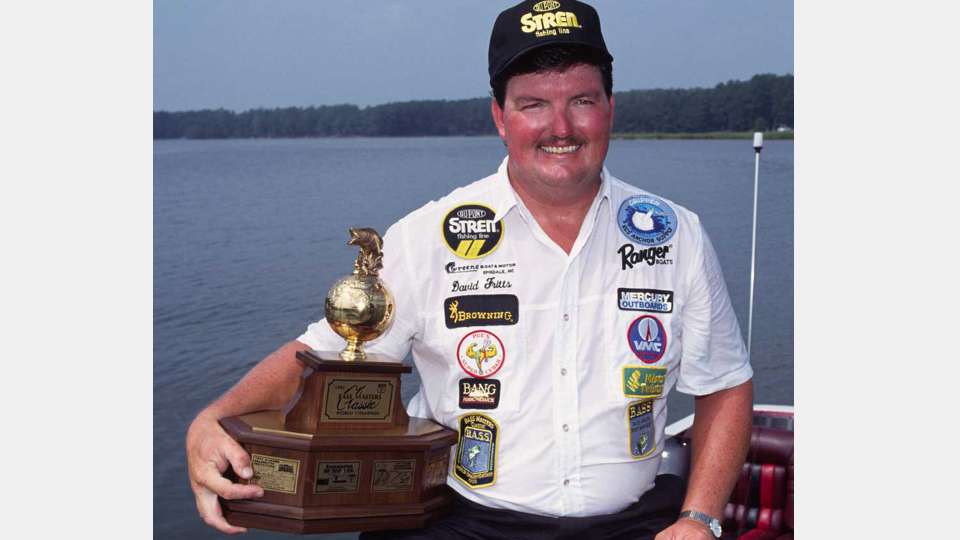
To avoid detection on the water during practice, Fritts fished from a 17-year-old bass boat with a 50hp engine and wore a big, floppy hat. Even so, his fellow competitors noticed him and occasionally stopped by to say hello. It was Frittsâ first Classic, and the âFritts Blitzâ was making headlines. The win made him a crankbaiting legend, and heâs still designing baits, rods, reels and even lines for the technique. This was also Bryan Kerchalâs first Classic, and he finished last (41st). As Kerchal took the stage for the last time at the championship, B.A.S.S. founder and master of ceremonies Ray Scott warned him that his poor fishing would send him back to flipping burgers in his home state of Connecticut. He obviously took those words as a challenge.
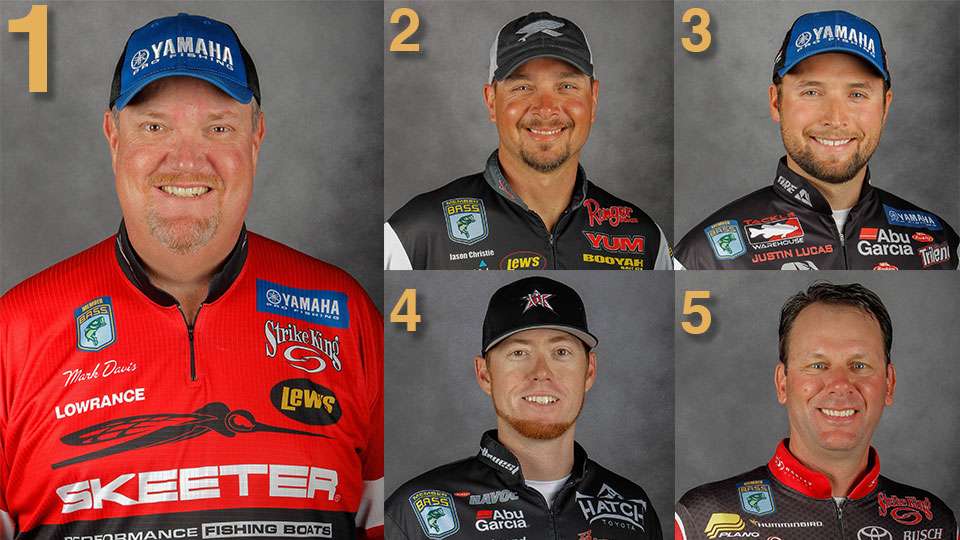
1. Mark Davis
2. Jason Christie
3. Justin Lucas
4. Josh Bertrand
5. Kevin VanDam
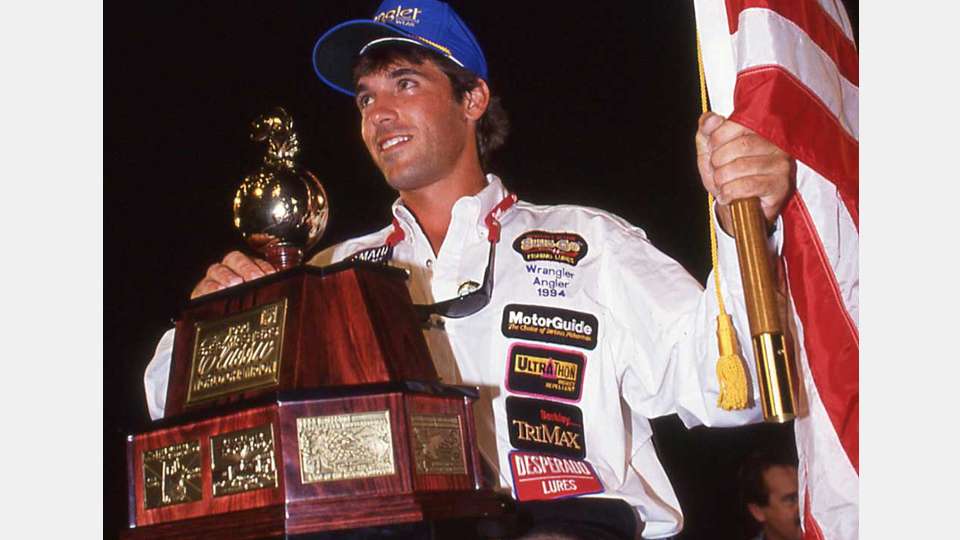
In bass fishing circles, Bryan Kerchal will forever be âthe one that got away.â Five months after winning the Classic at the age of 23, he was killed in a plane crash. He remains the only angler coming from the B.A.S.S. Nation (then the Bass Federation) to win the Classic. A year before he finished last. In 1994, Kerchal was struggling in Classic practice when he saw a used red shad Culprit worm floating near his boat. Since nothing else was working, he threaded it onto a hook and began catching fish. Today, his name is still a rallying cry among amateur anglers looking to make their dreams come true on fishingâs biggest stage.
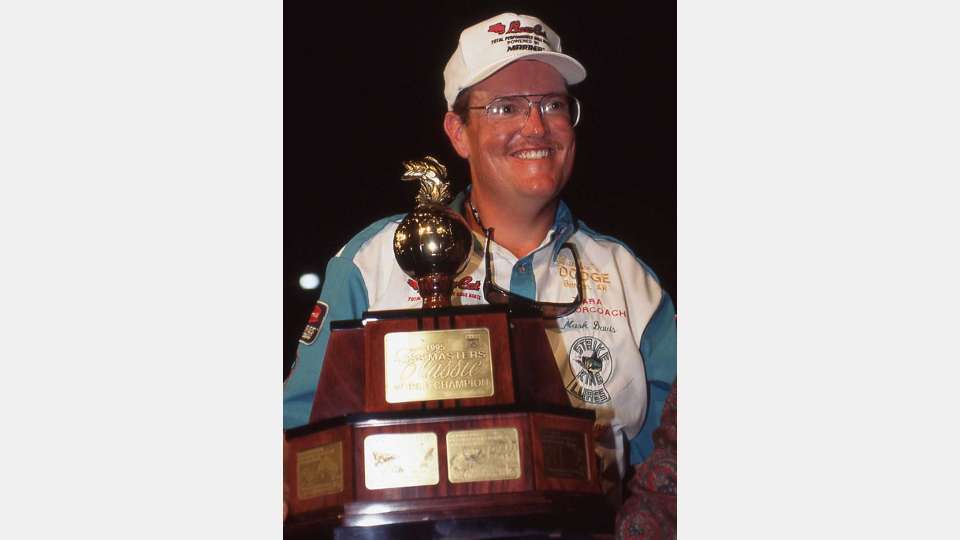
In 1995, Davis accomplished what pro anglers had only dreamed about before â he won both the Toyota Bassmaster Angler of the Year title and the GEICO Bassmaster Classic in the same season. Itâs been done just two times since then â back-to-back by Kevin VanDam in 2010 and 2011. Davisâ win was a testament to his versatility. He caught bass on topwaters, spinnerbaits and crankbaits, notching his first career B.A.S.S. win in the process.
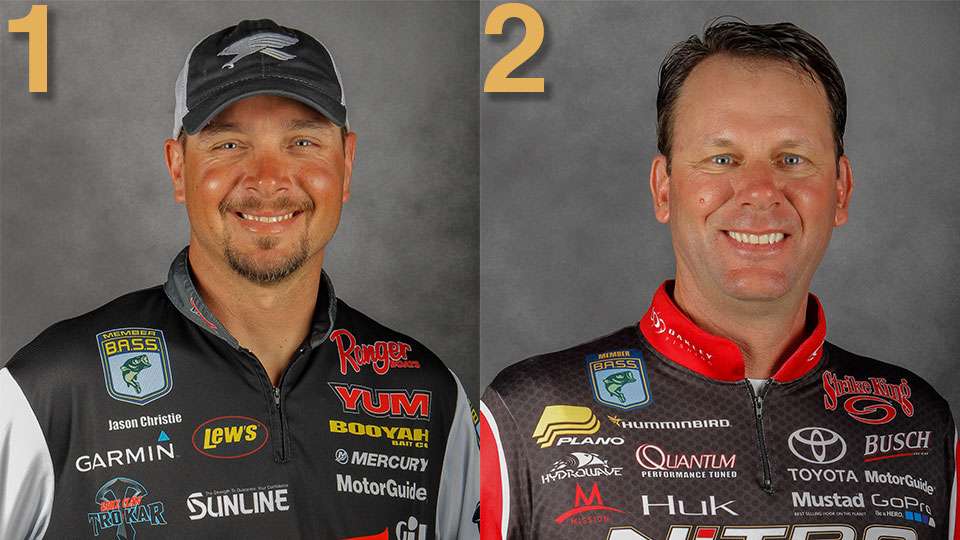
1. Jason Christie
2. Kevin VanDam
Davis picked only two anglers (and not even himself) because âpicking a winner is like picking a Powerball number â anyone can win.â
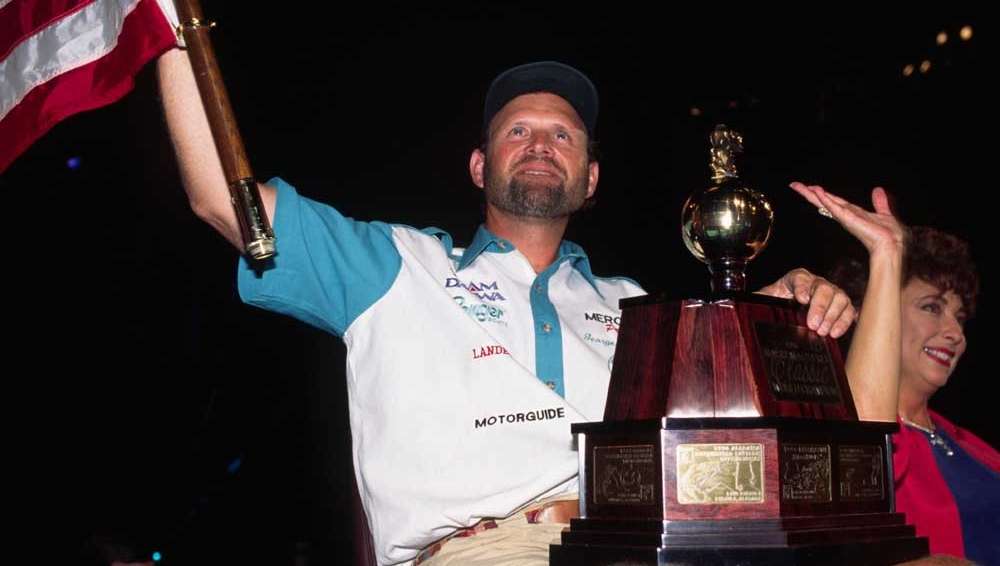
Cochran claimed his second Classic crown in 1996, and he did it by zigging when the rest of the field zagged. Most anglers were cranking, worming and spooning deep ledges, but Cochran went shallow, flipping worms and waking spinnerbaits in the back of a creek. At several times during the tournament, Cochran, Davy Hite and Mickey Bruce (who would finish first, second and third, respectively) were fishing within a hundred yards of each other. Bruce challenged for the lead on the final day, but it took him three hours to catch a bass. Thatâs when his press observer found two bananas in the boat â generally considered bad luck among anglers. Bruce immediately gave them to the nearest B.A.S.S. camera crew, but the damage had been done.
For Cochranâs 2016 Classic picks, go back to the 1987 Classic.
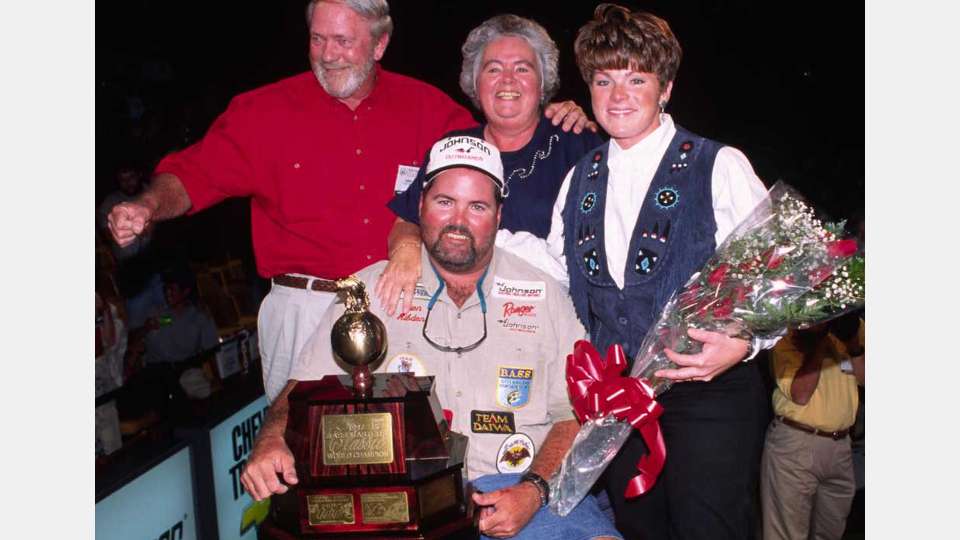
Everybody knows that Dion Hibdon is the younger half of the only father-son combo to both win a Classic. And everybody knows that Dion edged out Dalton Bobo by a single ounce to win the 1997 championship. Serious fans know that Bobo lost because of a 4-ounce dead fish penalty and that a year earlier the penalty was only 2 ounces. But almost no one knows that Hibdon caught a 4-pounder on his last cast of the final day, enabling him to cull a much smaller bass and win the title. Whatâs more, he did the same thing a few years later to win the FLW Forrest Wood Cup. Hibdon clearly has a flair for the dramatic. As he puts it: âI always figured my last cast was as good as my first.â
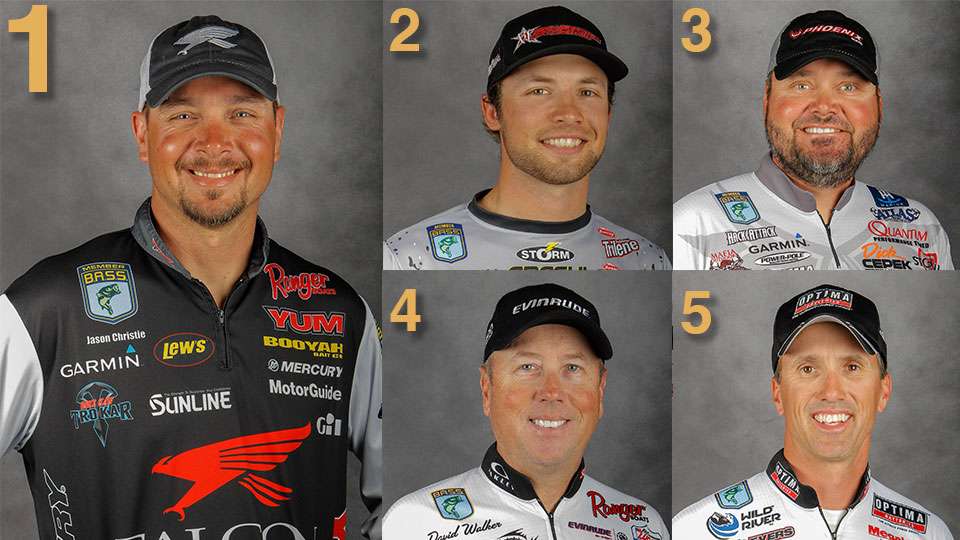
1. Jason Christie
2. Brandon Palaniuk
3. Greg Hackney
4. David Walker
5. Edwin Evers
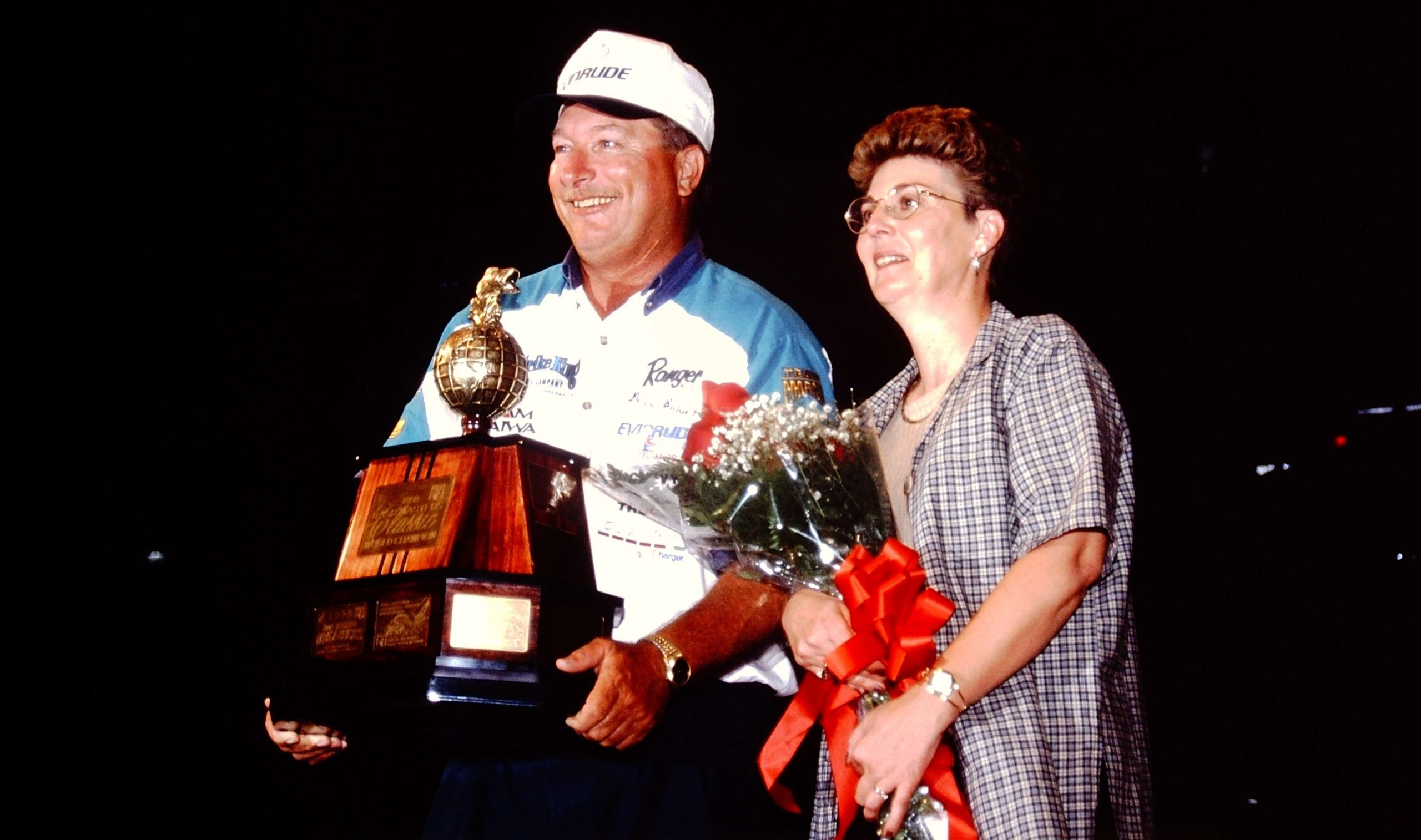
The Classic was held on North Carolinaâs High Rock Lake three times â 1994, 1995 and 1998 â and Brauerâs performances there ran the gamut. In â94 he was third and nearly won. In â95 he finished last. In â98 he put it all together and won. Several champs have also finished last in the Classic, but Brauer is the only one to win and finish last on the same body of water. And to date, heâs the angler who fished the most Classics before winning. The 1998 Classic was his 16th. This year, Aaron Martens, fishing his 17th Classic, hopes to break Brauerâs record. The 1998 Classic started the âcutâ system. Instead of weighing in every competitor each day, the field was cut to the Top 25 after two days, as it has been since. This was also the first (and thus far only) Classic to charge for attendance at the weigh-in.
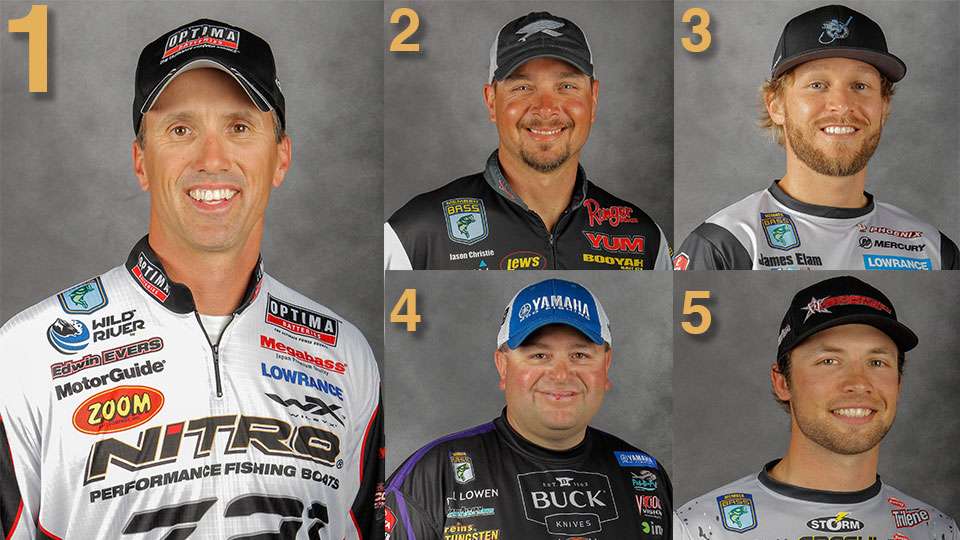
1. Edwin Evers
2. Jason Christie
3. James Elam
4. Bill Lowen
5. Brandon Palaniuk
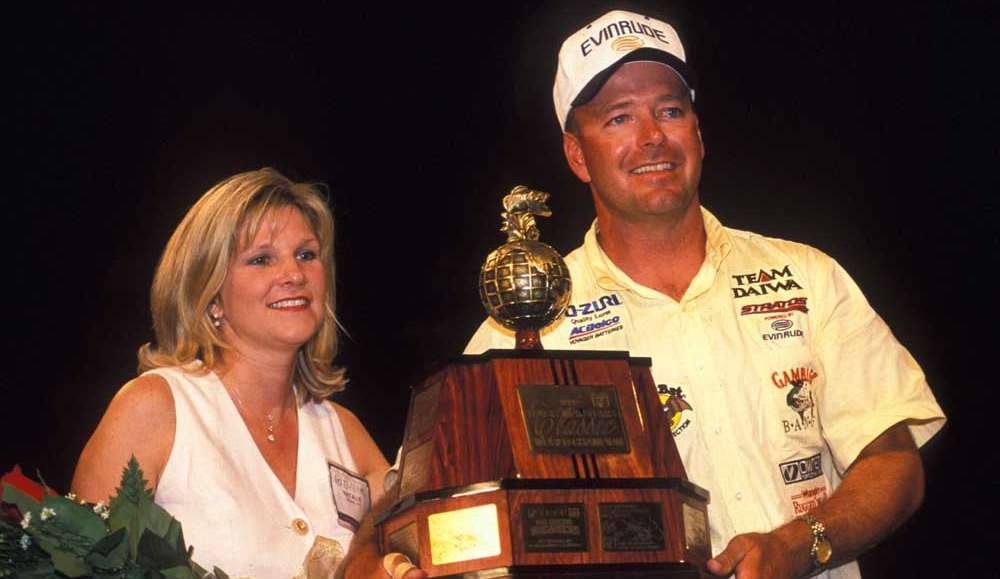
The â99 Classic was the hottest in history, and it will stay that way unless the championship goes back to the summertime. The first and last days of competition logged in at 96 degrees. Day 2 was a comparatively chilly 93. The Classic has always been a tournament that changed the way bass anglers fish, and this was the Classic at which Hite put the creature bait on the map. Casting and pitching one around Delta vegetation gave him a runaway victory and ensured that avid bassers everywhere would be Texas and Carolina rigging creature baits all over the country for years to come. Hite also set a mark for heaviest total weight in the five-bass-limit era that would stand until 2006. This was the Classicâs first of four stops at the Louisiana Delta, which ties the Delta (with Alabamaâs Lay Lake) for most frequent Classic destination.
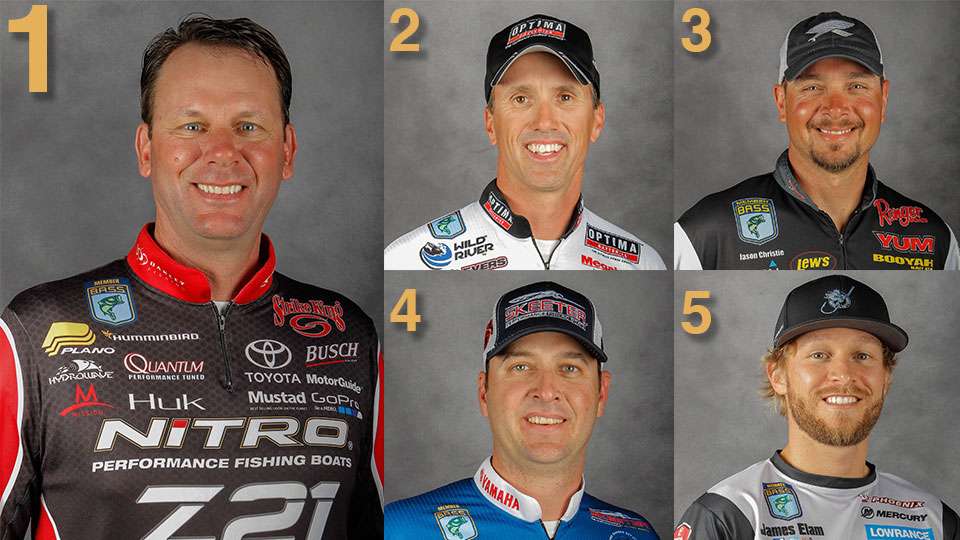
1. Kevin VanDam
2. Edwin Evers
3. Jason Christie
4. Todd Faircloth
5. James Elam
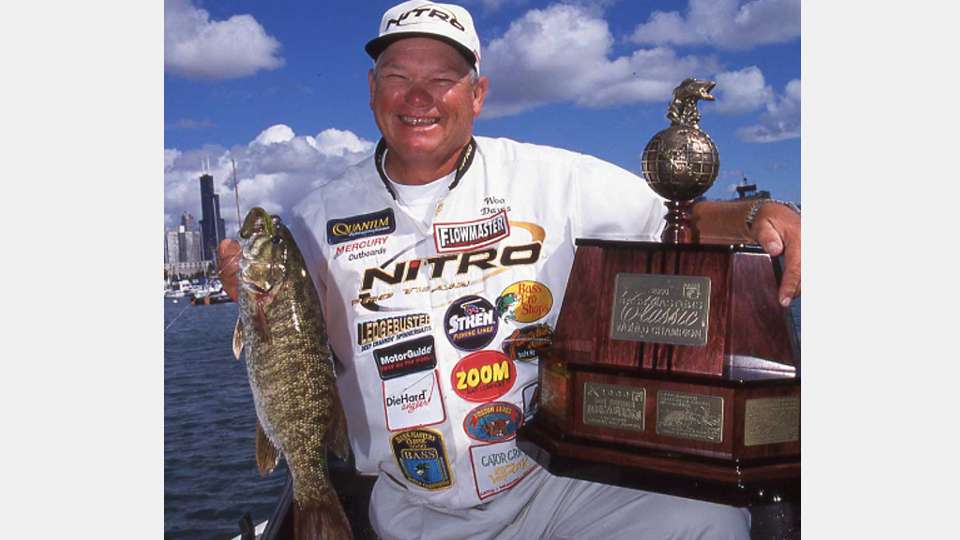
Legendary Soldier Field in Chicago was the site of the 2000 Classic weigh-ins, but the giant stadium just made the audience look small. Daves set a new mark for oldest champion at 54, breaking the record set by Charlie Reed in 1986. After strong performances in three consecutive Classics on his home water in Virginia (1988-90), Daves finally won his championship far from home, to the surprise of many. Lake Michigan, at more than 14 million surface acres, is several multiples bigger than any other Classic venue. After dominating the regular season and winning AOY honors as a young rookie, Tim Horton failed to catch a keeper at the Classic and finished last.
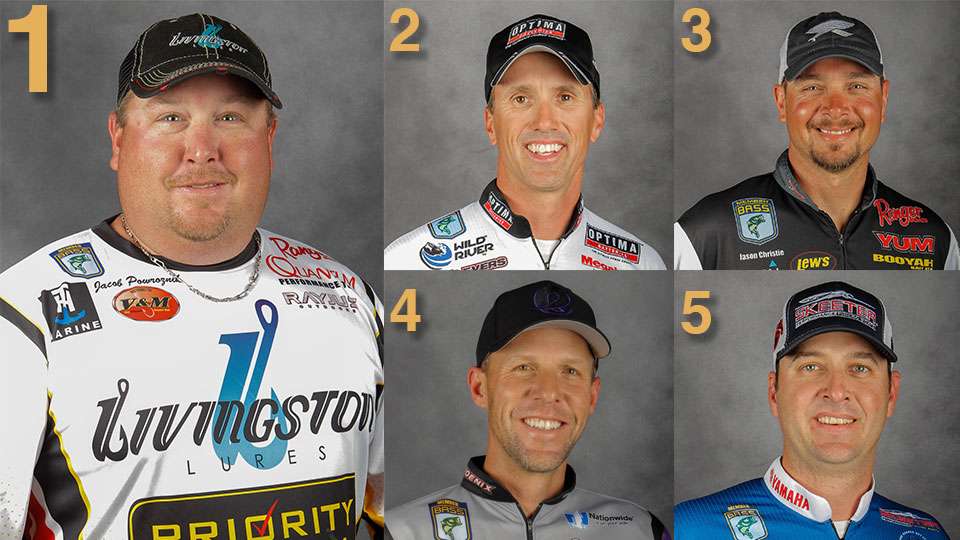
1. Jacob Powroznik
2. Edwin Evers
3. Jason Christie
4. Aaron Martens
5. Todd Faircloth
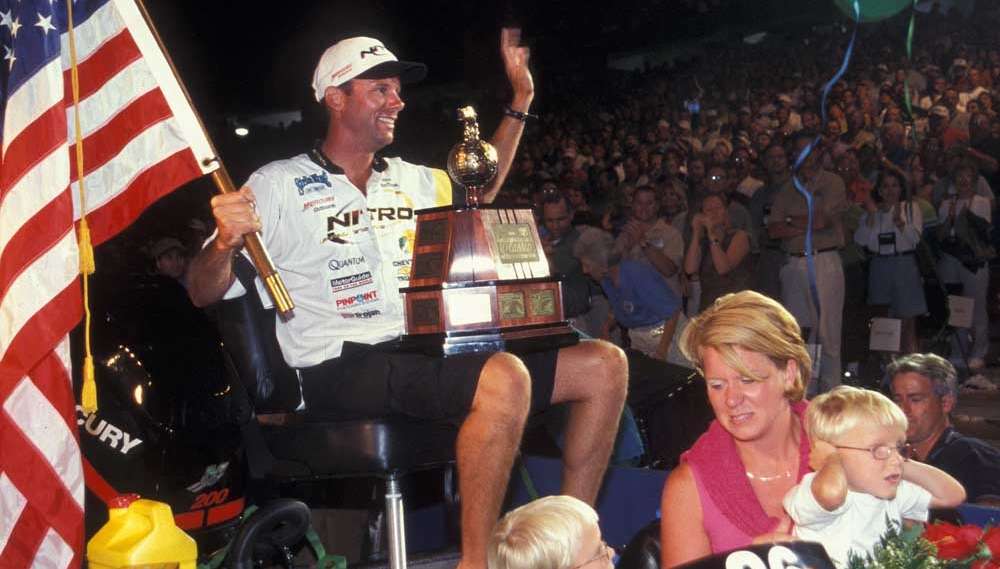
If KVD had an Achilles heel during the first decade of his career, it was the Classic. He piled up Tops 10s in the championship, but couldnât notch a win. It was the only criticism of the Kalamazoo Kid as a pro. Of course, all that changed in 2001, and when it did he put himself among the all-time greats of the sport. ESPN purchased B.A.S.S. a few months before the 2001 Classic and this was the last year it was known as the âBASS Masters Classic.â For some reason, KVD has a knack for winning during periods of B.A.S.S. transition. When Helen Sevier sold the company to ESPN in 2001, he won the next Classic. When ESPN sold to Don Logan, Jim Copeland and Jerry McKinnis in 2010, KVD won the next Classic. He holds the records for heaviest total weight in the five-bass-limit era, the lightest winning weight and too many other records to mention here. Plus, heâs back in 2016 after missing the 2015 championship â the only one he missed in the last quarter century!
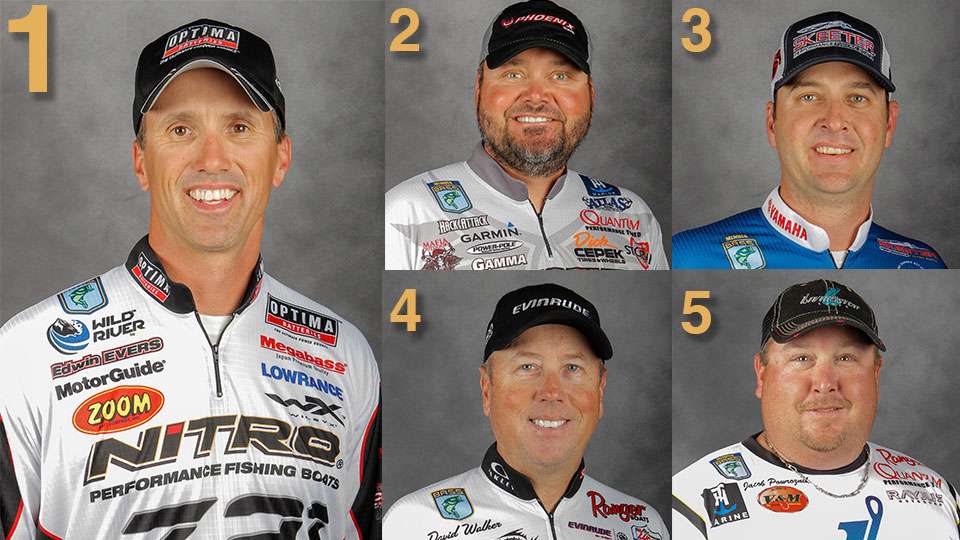
1. Edwin Evers
2. Greg Hackney
3. Todd Faircloth
4. David Walker
5. Jacob Powroznik
What? VanDam didnât put himself on that list? Is the legendary KVD confidence starting to crack? Absolutely not. âOf course, for anyone to win they have to go through me,â he said.
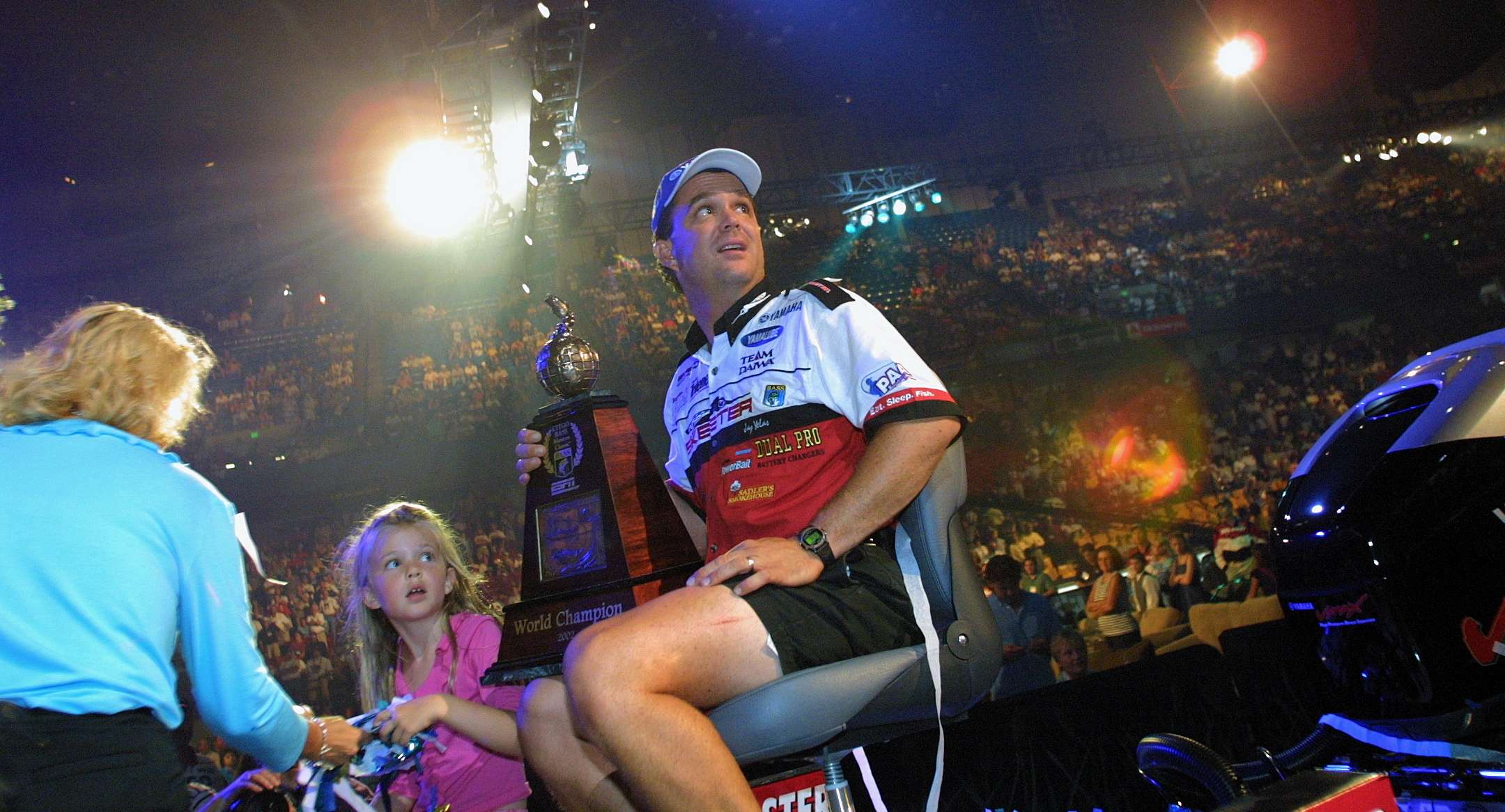
There arenât many sports records about which you can say they will never be broken, but Yelas established one at the 2002 Classic. He caught the daily big bass all three days of the championship. Itâs a record that might be tied, but it can never be broken. He had a knack for catching Classic lunkers. Yelas also caught the biggest bass of the 2001 Classic. ESPN rebranded many B.A.S.S. properties beginning in 2002, starting with the Classic. Its name was changed from âBASS Masters Classicâ to âBassmaster Classic,â which it has been ever since. Earlier in the Classic month (July), Kevin VanDam earned bass fishingâs first ESPY as Best Outdoor Sports Athlete. A year later, Yelas won the same award.
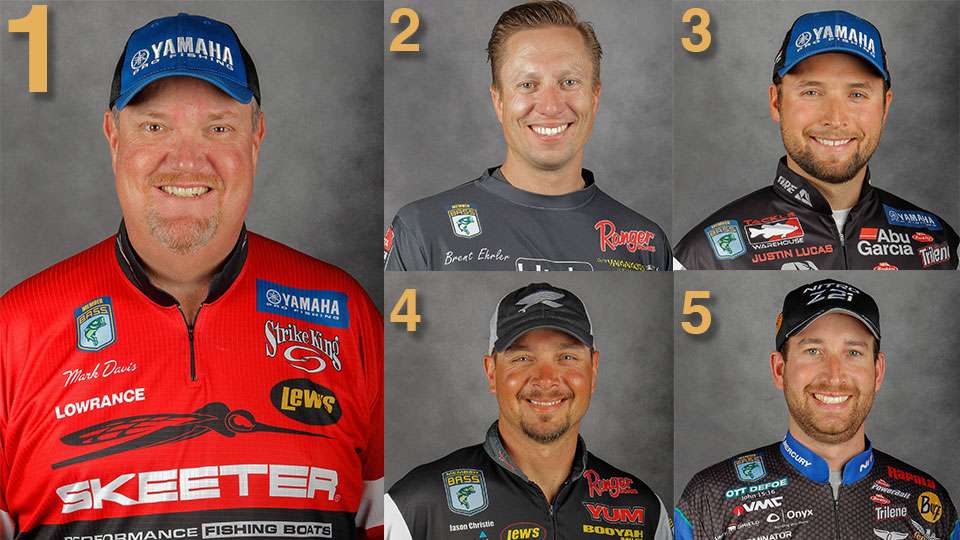
1. Mark Davis
2. Brent Ehrler
3. Justin Lucas
4. Jason Christie
5. Ott DeFoe
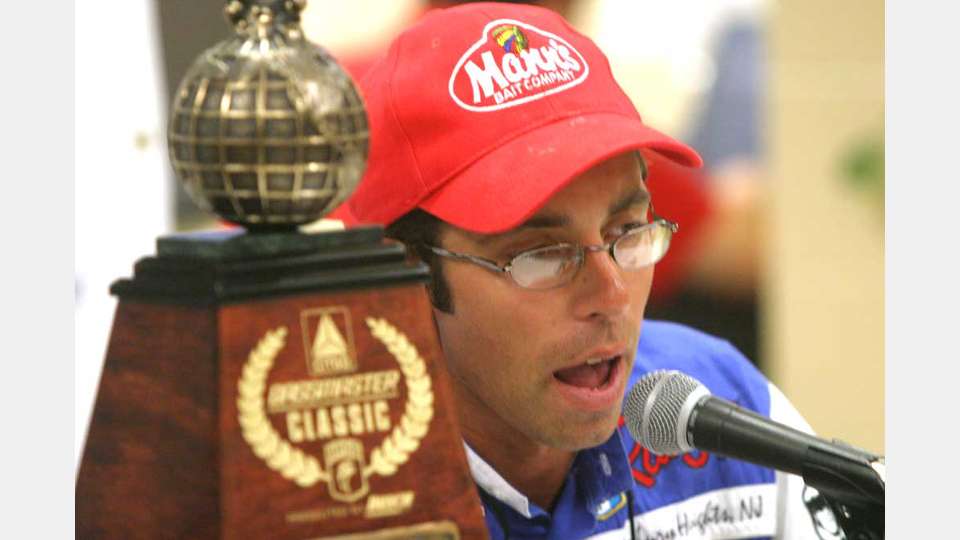
âNever give up!â Other athletes and coaches had uttered those words before, but Iaconelli proved their worth in the final hour of the 2003 Classic, besting the largest field in Classic history (61 anglers). Early the next morning, Ike was scheduled for an on-the-water photo shoot with legendary B.A.S.S. photographer Gerald Crawford. As Crawford was leaving the hotel to meet the new champ, Ike was just coming in after a night celebrating on Bourbon Street. Laissez les bon temps rouler! In the finals, runner-up Gary Klein and his cameraman Wes Miller were shot at by a landowner, but Klein was undeterred and caught his best bass of the day in the area. Plaquemines Parish authorities later chose not to prosecute the shooter. It would be eight years before B.A.S.S. brought the Classic back to the Delta.
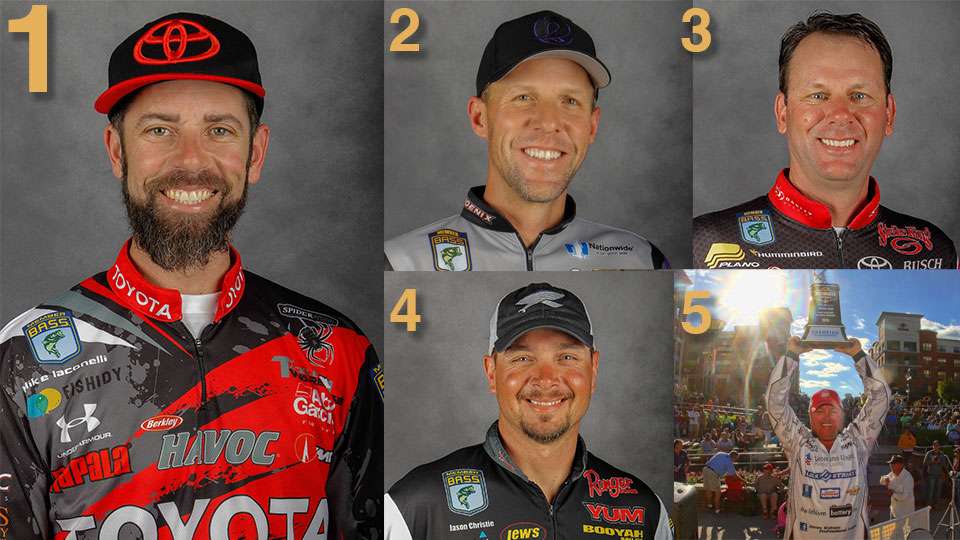
1. Michael Iaconelli
2. Aaron Martens
3. Kevin VanDam
4. Jason Christie
5. James Watson
Ike ended the first day of the 2013 Classic on Grand in a tie for the lead with eventual champion Cliff Pace. On Day 2, mechanical issues and a barking dog derailed his chances. How will he combat such adversity in 2016? âIâm bringing dog biscuits this year,â he says.
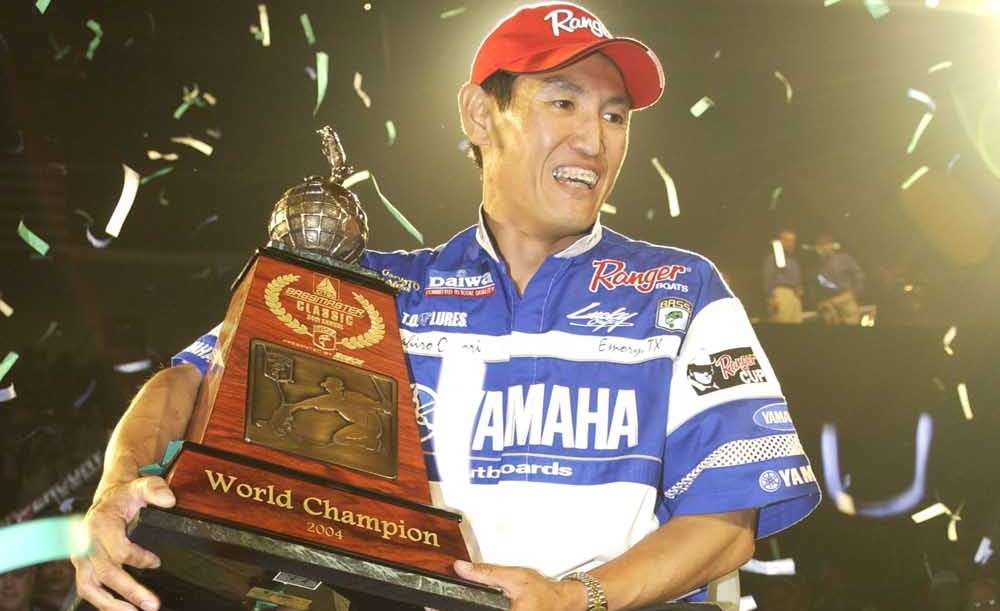
If you want late-inning heroics, look no further than the 2004 Classic and Omoriâs decision to head for the banks of Lake Wylie with a balsa square bill. Something told him he had ground to make up, and he was right. When he started throwing the crankbait to shallow, woody cover, things got better in a hurry and just in time. Omori became the first (and thus far only) foreign national to win the championship â a fitting fate for a young man who left his native Japan speaking almost no English and knowing almost no one in the U.S. The title justified his sacrifice and made Omori an international fishing star.
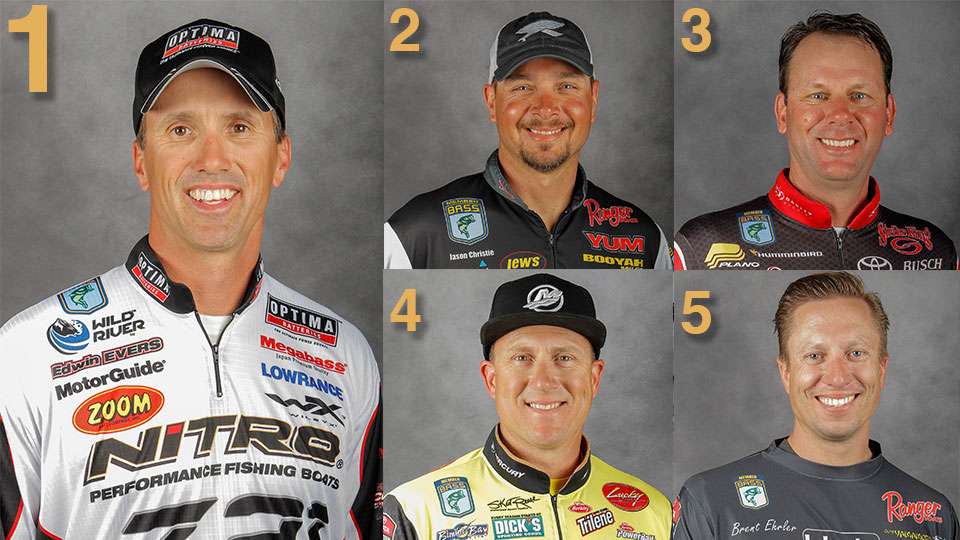
1. Edwin Evers
2. Jason Christie
3. Kevin VanDam
4. Skeet Reese
5. Brent Ehrler
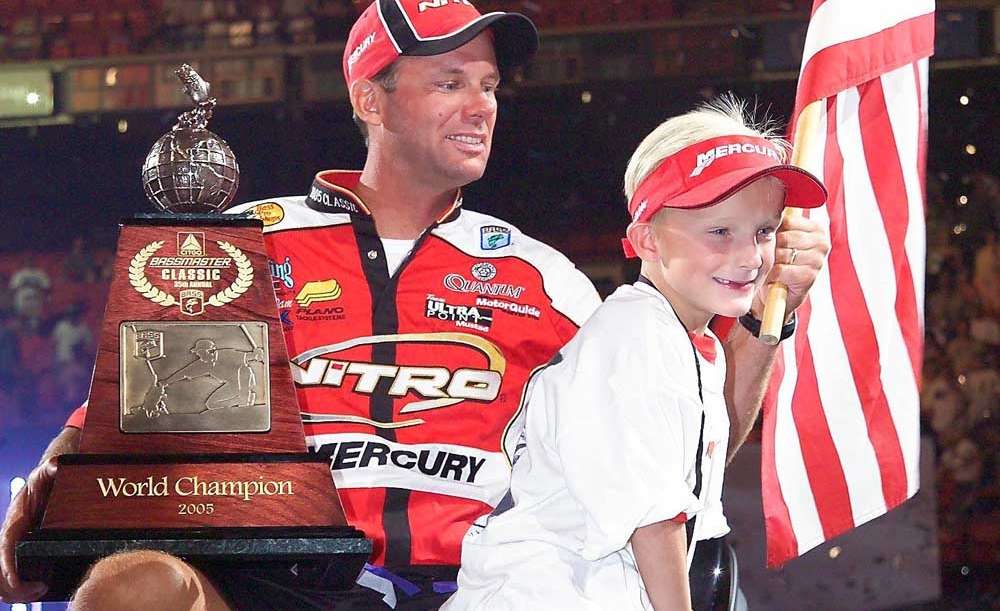
The 2005 Classic was short on fish, but long on drama as KVD set the record for lowest winning weight with just 12-15 over three grueling days. How tough was the fishing? The biggest bag of the event weighed only 6-2 and big bass for the entire tournament was 2-14; daily lunkers for Days 2 and 3 weighed 1-15 each. It was the last of 23 consecutive Classics held in the summer. VanDam was red hot coming into the tournament, having won the previous two B.A.S.S. events (and one of his Junior anglers won the Junior Bassmaster World Championship just prior to the Classic). With three in a row, he joined Roland Martin as the only anglers ever to win back-to-back-to-back on the B.A.S.S. tour.
For VanDamâs 2016 Classic picks, go back to the 2001 Classic.
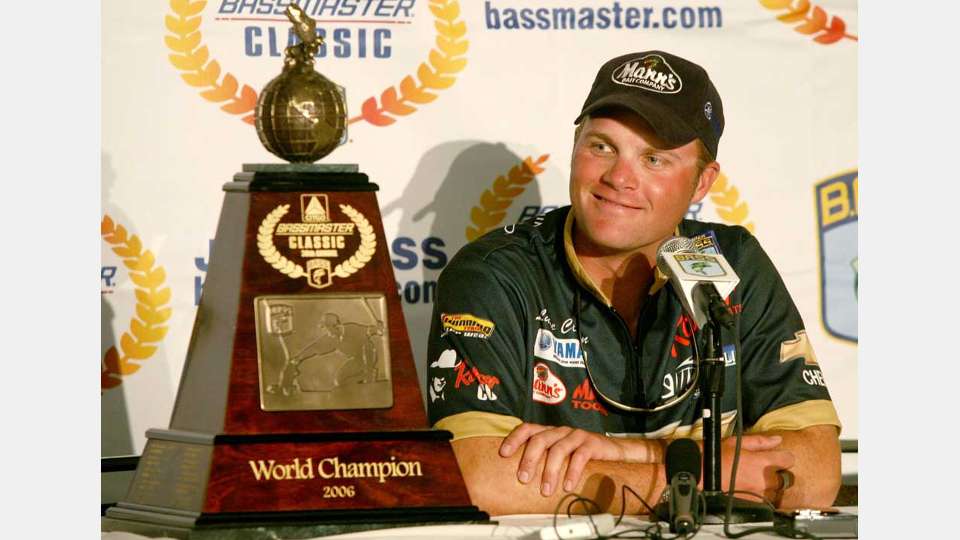
Clausen was the angler who made the longest trek to get to the Classic in 2006 â from Washington State to Central Florida. The trip paid off as he led wire-to-wire. On Day 1, virtually every previous Classic record was snapped â single day weight for a five-bass limit, big bass, highest catch rate, etc. Then a cold front came through and shut down the fishing, but Clausen held on for the win, breaking Davy Hiteâs 1999 record for heaviest weight in the five-bass-limit era, with 56-2 (since broken). He proved his mettle not by jumping into the early lead but by weighing in solid limits every day after the weather changed. It was the first Classic held in the winter, the first time the total Classic payout exceeded $1 million and the first year the winner earned $500,000.
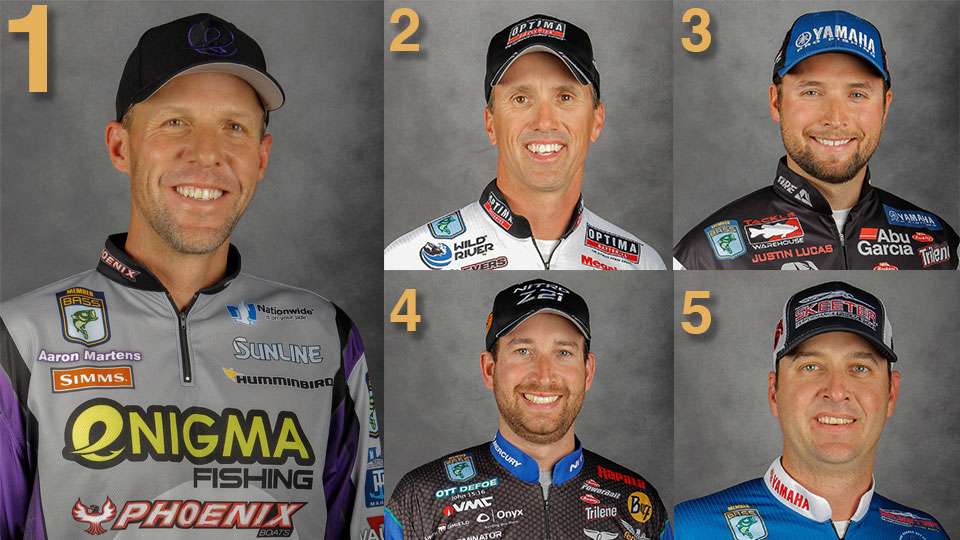
1. Aaron Martens
2. Edwin Evers
3. Justin Lucas
4. Ott DeFoe
5. Todd Faircloth
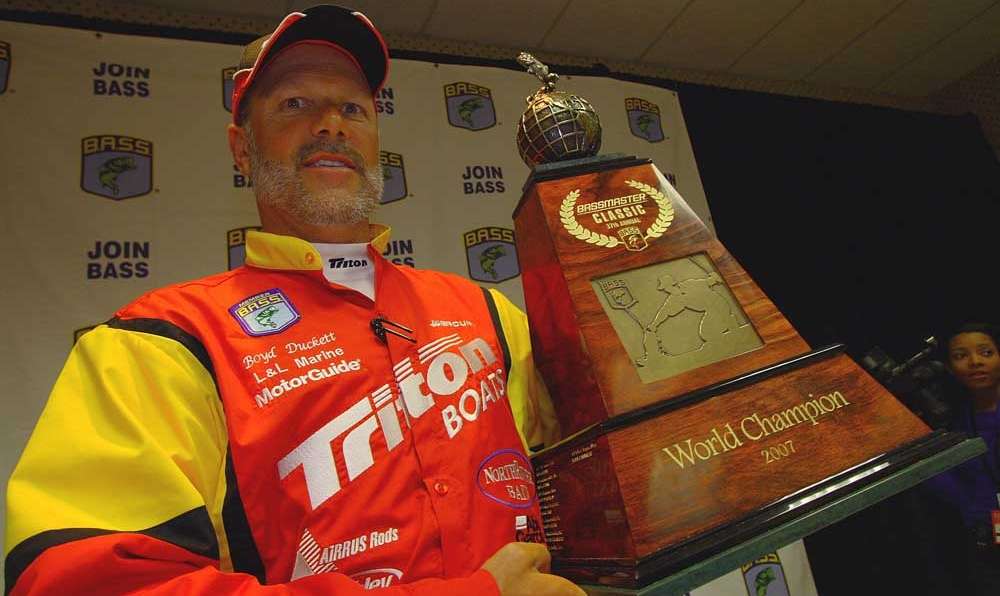
Duckett became the first angler to win the Classic in his home state. Before he pulled off the feat, fishing at âhomeâ was widely considered a disadvantage and many local favorites had seemed jinxed. Maybe everyone should have seen Duckettâs win coming, though. At the weigh-in for the Junior Bassmaster World Championship just a week before the Classic, the young anglers were paired with Classic qualifiers and fished from their boats. One of Duckett’s juniors introduced him to the audience as the 2007 Bassmaster Classic champion. A week later Duckett proved him prophetic.
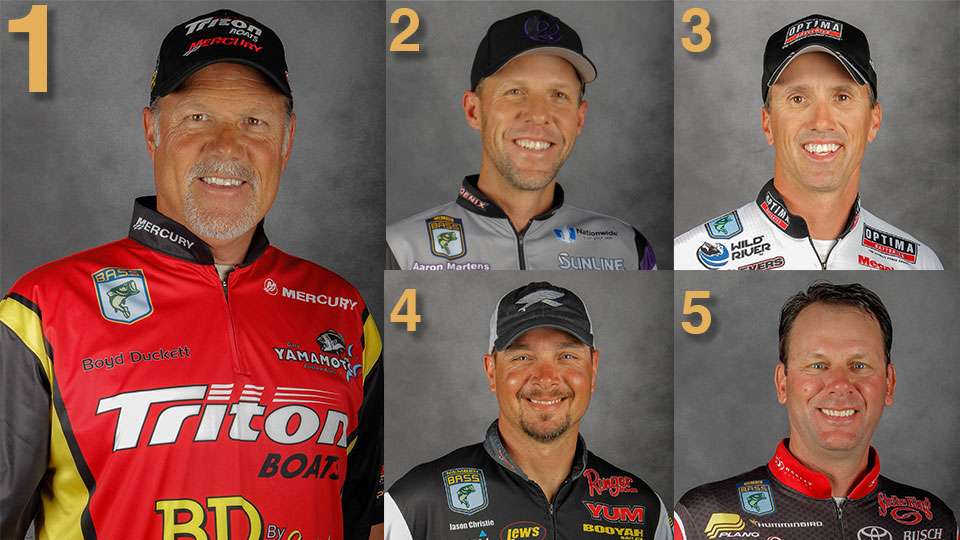
1. Boyd Duckett
2. Aaron Martens
3. Edwin Evers
4. Jason Christie
5. Kevin VanDam
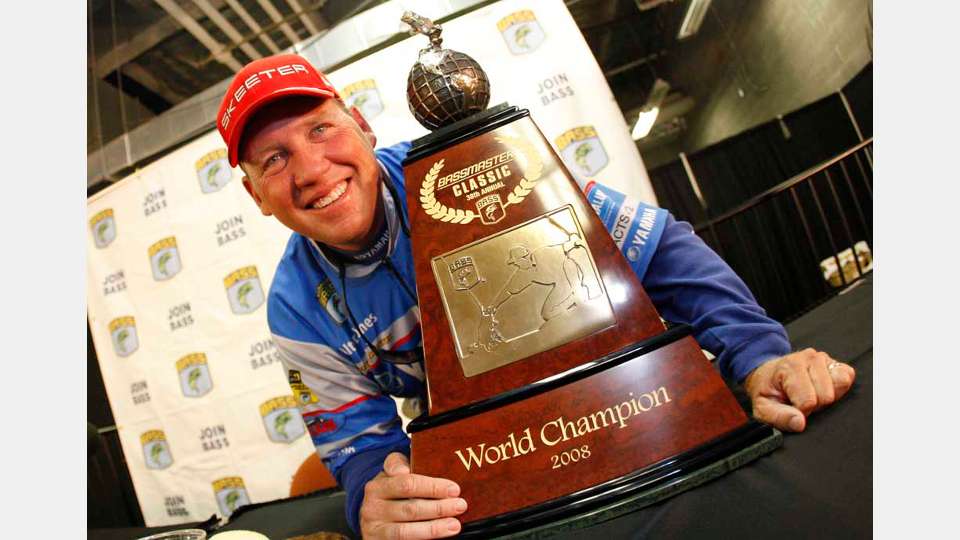
Texas residents have won more Classics than anglers from any other state â nine. Jones, in 2008, is the latest entry. The Lone Star State is also the place of birth for more Classic champs than any other. Bobby Murray, Tommy Martin, Bryan Kerchal and Jones were all born in Texas. And do you know which state has produced â by far â the most Classic qualifiers? Yeah, I bet you do. But in case you donât, itâs Texas with 305; Arkansas is second with 191. Texas really showed its Classic dominance between 1980 and 1991 when more than 21 percent of all Classic qualifiers called the state home.
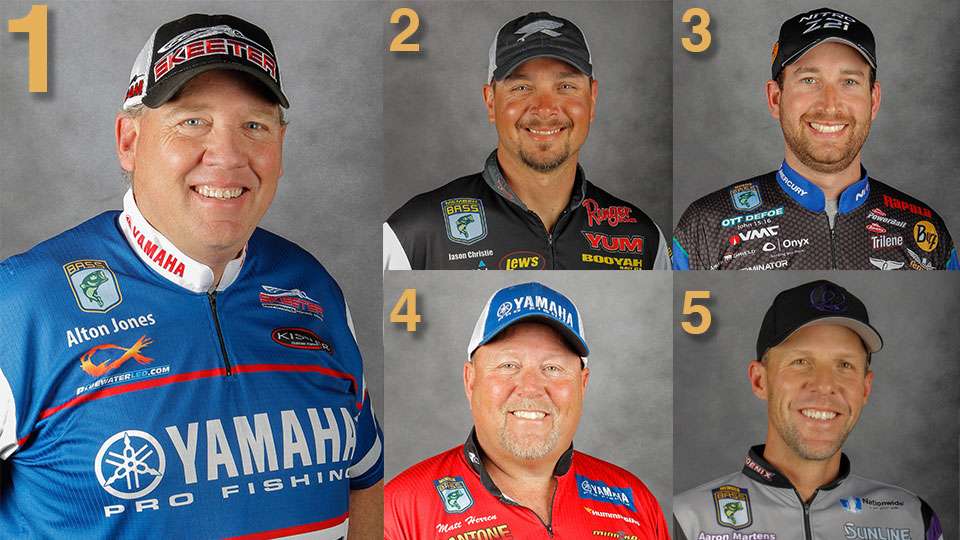
1. Alton Jones
2. Jason Christie
3. Ott DeFoe
4. Matt Herren
5. Aaron Martens
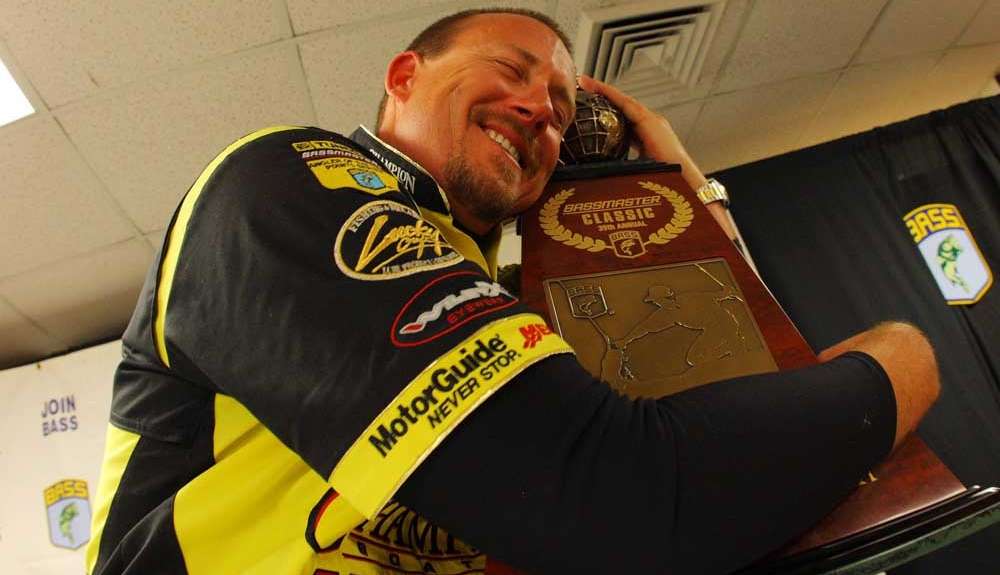
Reese reported slow going in practice, but he clearly found the areas the bass would be using once competition started. After a modest first day, he found a new gear on Days 2 and 3 to win the championship in front one of the largest and most enthusiastic crowds in Classic history. Slow-rolling a spinnerbait and pitching a creature bait earned him limits each day as he edged Michael Iaconelli by 11 ounces. Kim Bain-Moore became the first woman to compete in the Classic after qualifying as the 2008 Women’s Bassmaster Tour Angler of the Year. She finished 47th out of 51 anglers.
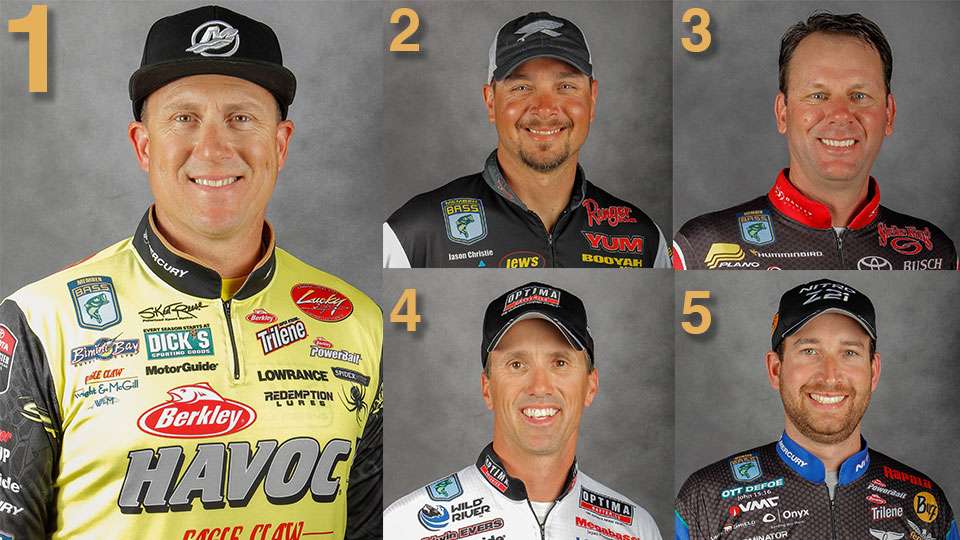
1. Skeet Reese
2. Jason Christie
3. Kevin VanDam
4. Edwin Evers
5. Ott DeFoe
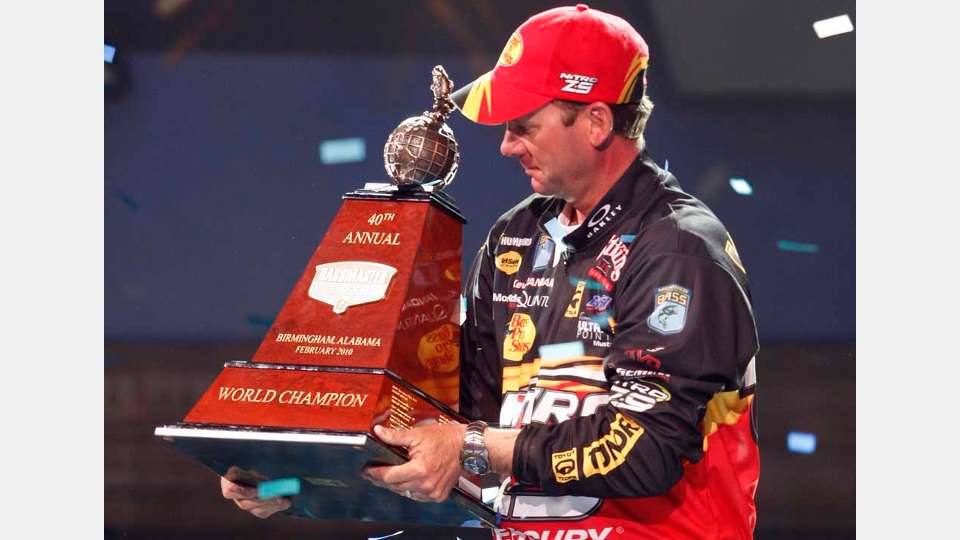
VanDam won his third Classic and showed his genius for fishing in a crowd of spectator boats. Whereas most competitors struggle in the crowd, KVD used the armada following him like a fiberglass shield to keep other competitors away from his best area. The top three in the standings rotated position each day, but the names didnât change â VanDam, Jeff Kriet and Todd Faircloth. Pam Martin-Wells became the second (and thus far last) woman to compete in the Bassmaster Classic after qualifying as the 2009 Women’s Bassmaster Tour Angler of the Year. She finished 22nd.
For VanDamâs 2016 Classic picks, go back to the 2001 Classic.
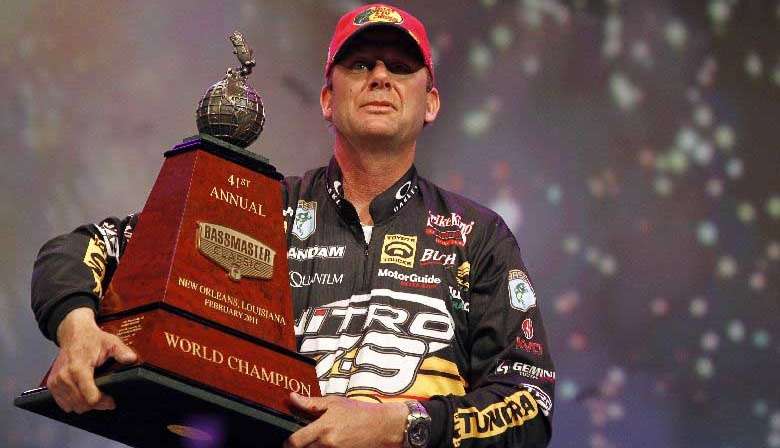
Before the 2011 Classic I asked a former champ for the names of three anglers he thought had the best chance to win. Instead of answering that question, he said, âIâll tell you whoâs not going to win â Kevin VanDam. Heâs in the wrong place and will be lucky to catch a fish.â The âwrong placeâ was an area known as Cataouatche, and before it was over thatâs where all of the leaders were fishing. VanDam won by nearly 11 pounds and joined Rick Clunn as the only anglers to win four Classics and to go back-to-back. He also became the first angler to win multiple Classics on the same body of water (see 2001).
For VanDamâs 2016 Classic picks, go back to the 2001 Classic.
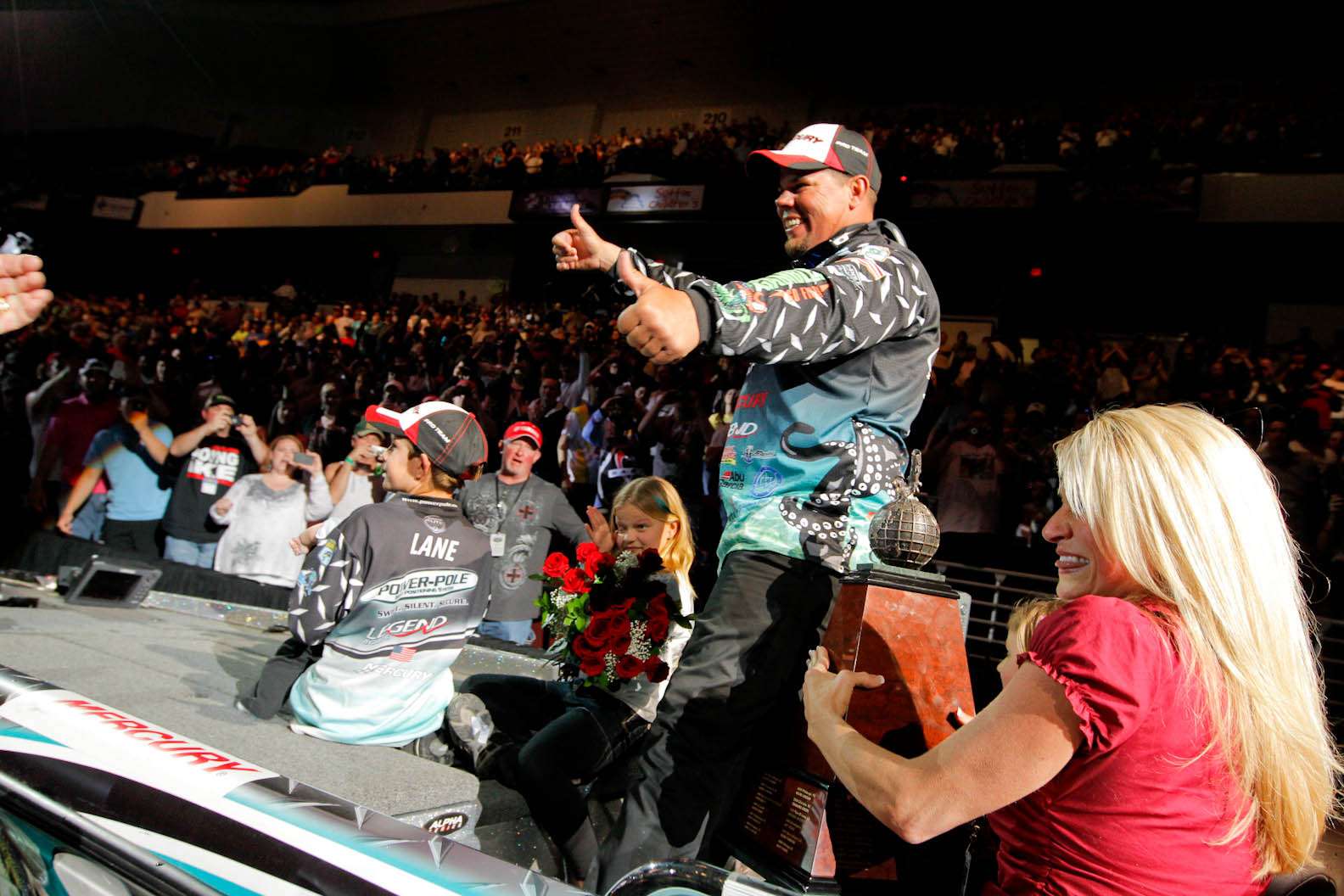
The 2012 Classic was the âall Alabamaâ show. The top three finishers (Lane, Greg Vinson and Keith Poche) all lived in the Heart of Dixie at the time of the tournament (though Lane is from Florida, and Poche is from Louisiana). This was also the first time a College B.A.S.S. angler qualified for the Classic. Andrew Upshaw of Stephen F. Austin University finished 31st. Skeet Reese, who won on the Red River in 2009, failed to qualify for the championship for the first time in a decade. Lane came into the tournament red hot and making all the right moves. He had won his preceding B.A.S.S. event (a Southern Open on Floridaâs Harris Chain) and the Classic made it two in a row. It kicked off a three-year run in which he won an impressive five B.A.S.S. tournaments and established himself as a force wherever the trail stopped.
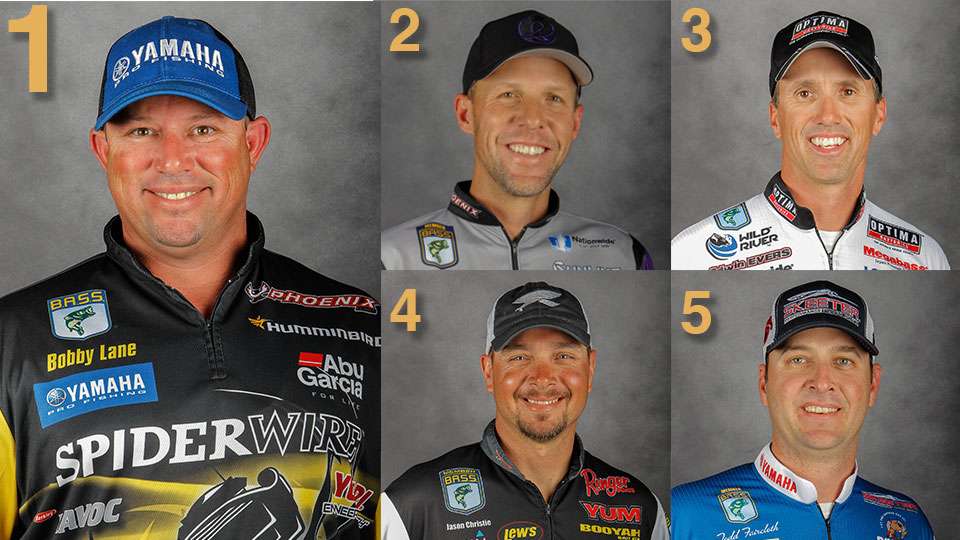
1. Bobby Lane
2. Aaron Martens
3. Edwin Evers
4. Jason Christie
5. Todd Faircloth
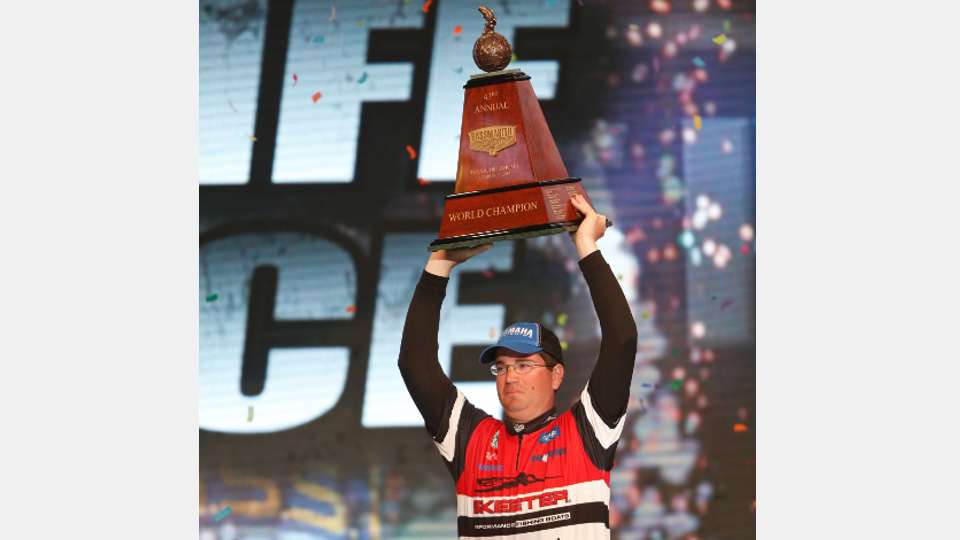
For the first and so far only time in Classic history, a competition day ended in a tie. Round one saw Pace and Michael Iaconelli knotted at 21-8, but it was all Pace after that. Defending champion Chris Lane zeroed on the first day. It was the only time a defending champion zeroed on the first day of his title defense. He bounced back on Day 2 with one of the heaviest bags of the tournament. Pace actually credits a lost bass on Day 1 as contributing to his win. âIt was a giant â 7 or 8 pounds â and I touched her twice, but she wasnât well-hooked and pulled free of my jerkbait. I thought that might cost me the tournament, but I think it saved me.â Had he caught the lunker, Pace would have held a commanding lead and drawn lots of spectator boats. Instead, the fans followed Iaconelli and others, leaving Paceâs skittish fish unmolested so that he could continue catching them.
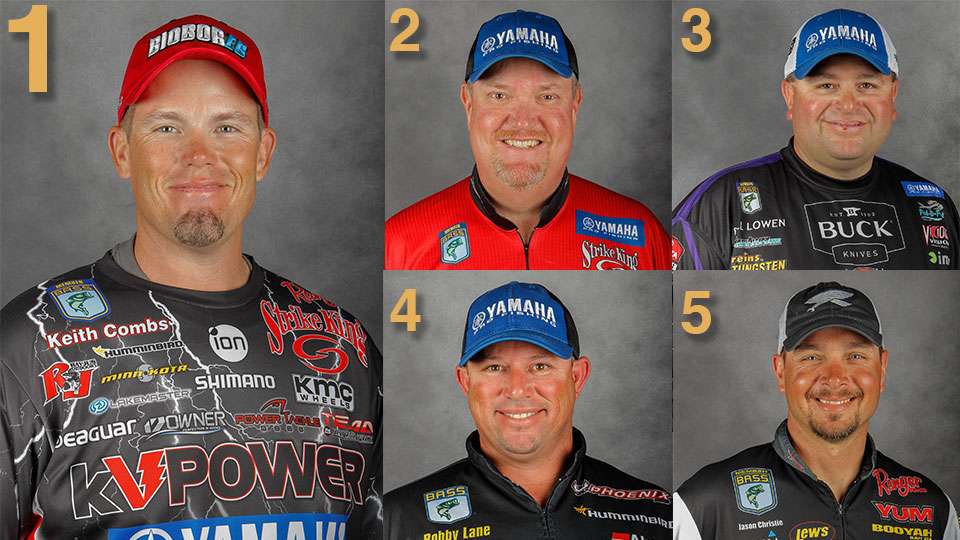
1. Keith Combs
2. Mark Davis
3. Bill Lowen
4. Bobby Lane
5. Jason Christie
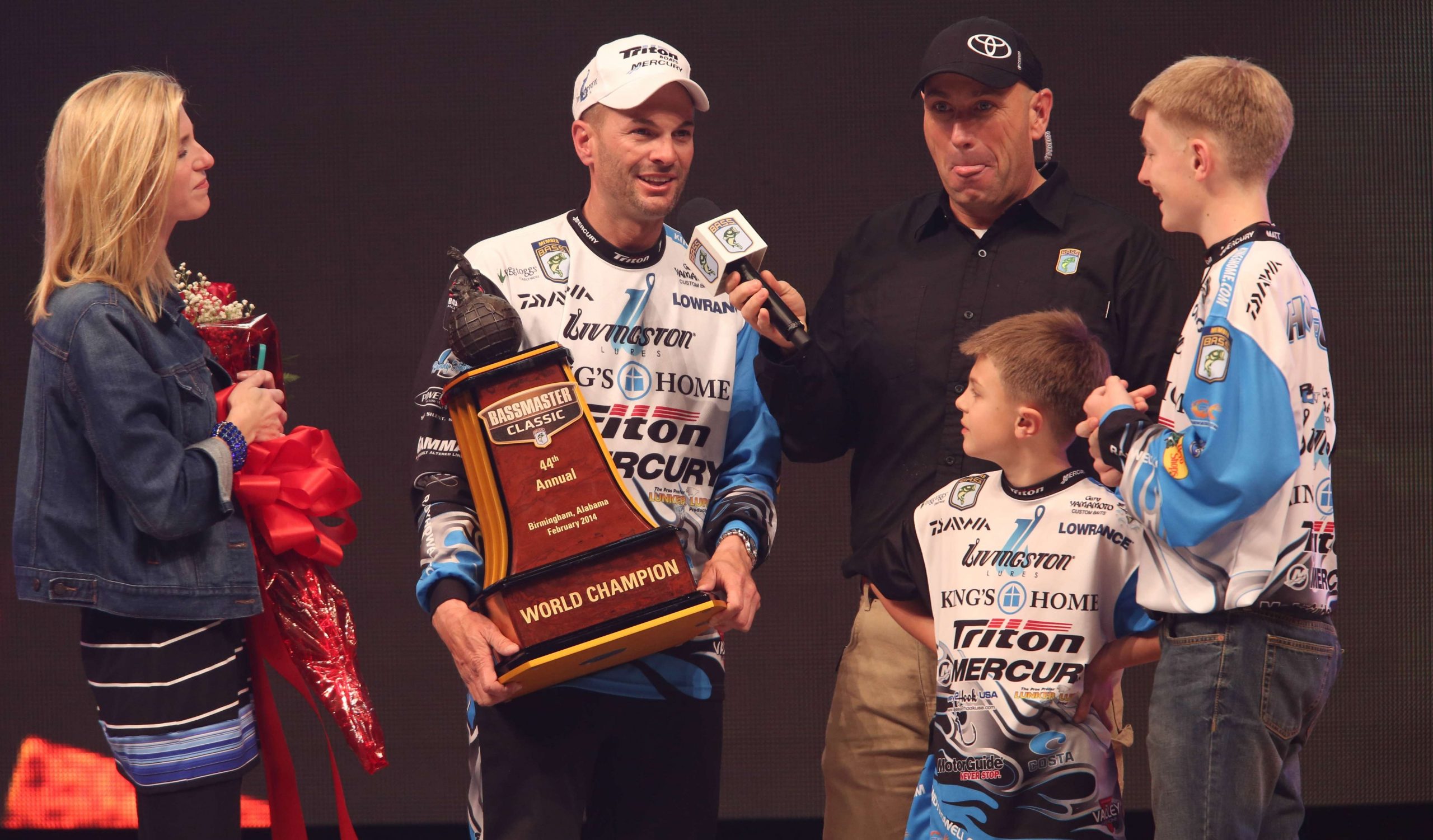
If you want to assess Classics on strength of field, this one ranks first. Not only was it full of former champs and AOYs, but even the college and Weekend Series qualifiers had history on Guntersville. And because the lake is a frequent stop on the Bassmaster tournament trail, the field was intimately familiar with the venue. Add it up, and you get tough! Howell pulled it off in dramatic come-from-behind fashion, becoming the second angler to win in his home state (Duckett was first in 2007). The 2014 Classic was historic for other reasons, too. Gary Klein became the second angler to qualify for 30 or more championships (Rick Clunn has 32), and reigning champ Cliff Pace was unable to defend his crown because he broke a leg in a hunting accident a month before the tournament. Instead, Pace claimed an automatic berth in the 2015 Classic.
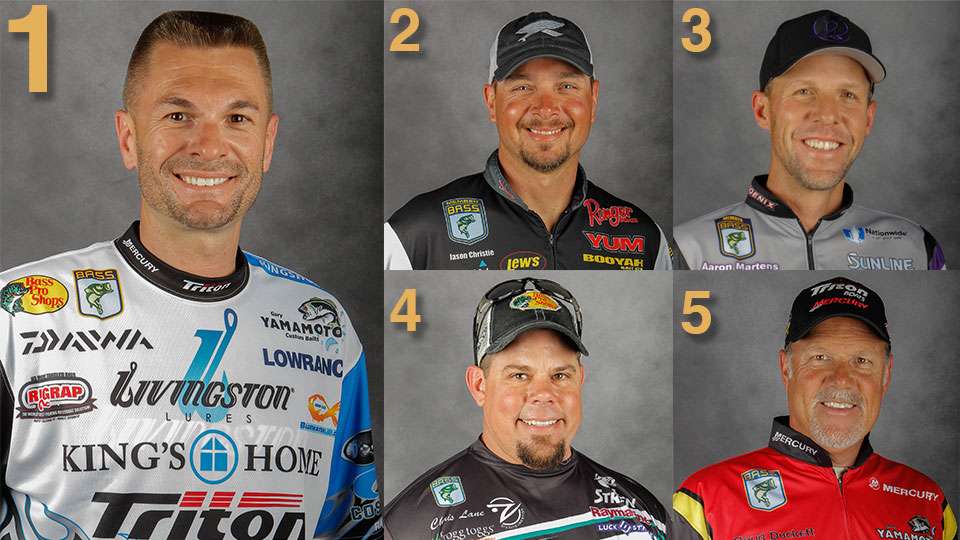
1. Randy Howell
2. Jason Christie
3. Aaron Martens
4. Chris Lane
5. Boyd Duckett
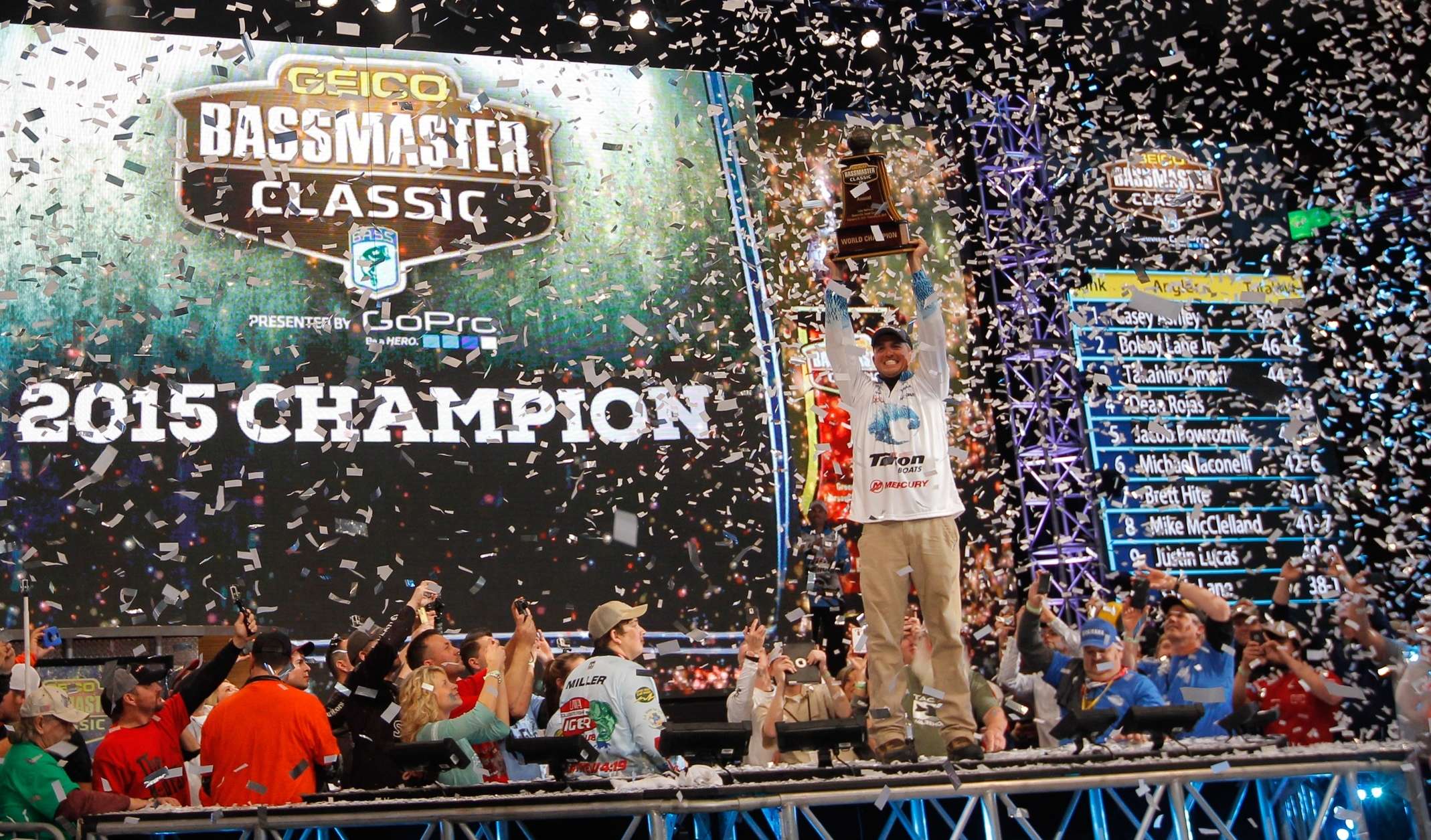
Rarely if ever has a Classic had a bigger pre-tournament favorite than Ashley. Not only was Hartwell his home water, but he had won a major tournament there a year earlier, so he had a game plan in mind well before practice started. But being favored and actually winning are two very different things, and Ashley pulled it off, becoming the third angler in history (and second in a row) to win the championship in his home state and the first winner to sing the National Anthem to kick off the competition. The 2015 championship also posted the coldest day in Classic history. When competitors launched on Day 1, it was just 10 degrees.
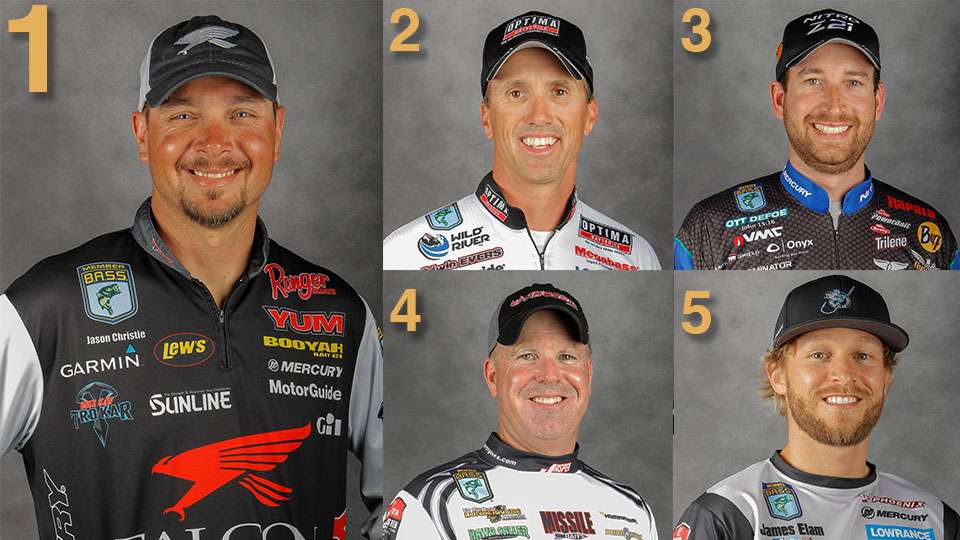
1. Jason Christie
2. Edwin Evers
3. Ott DeFoe
4. Chad Morgenthaler
5. James Elam
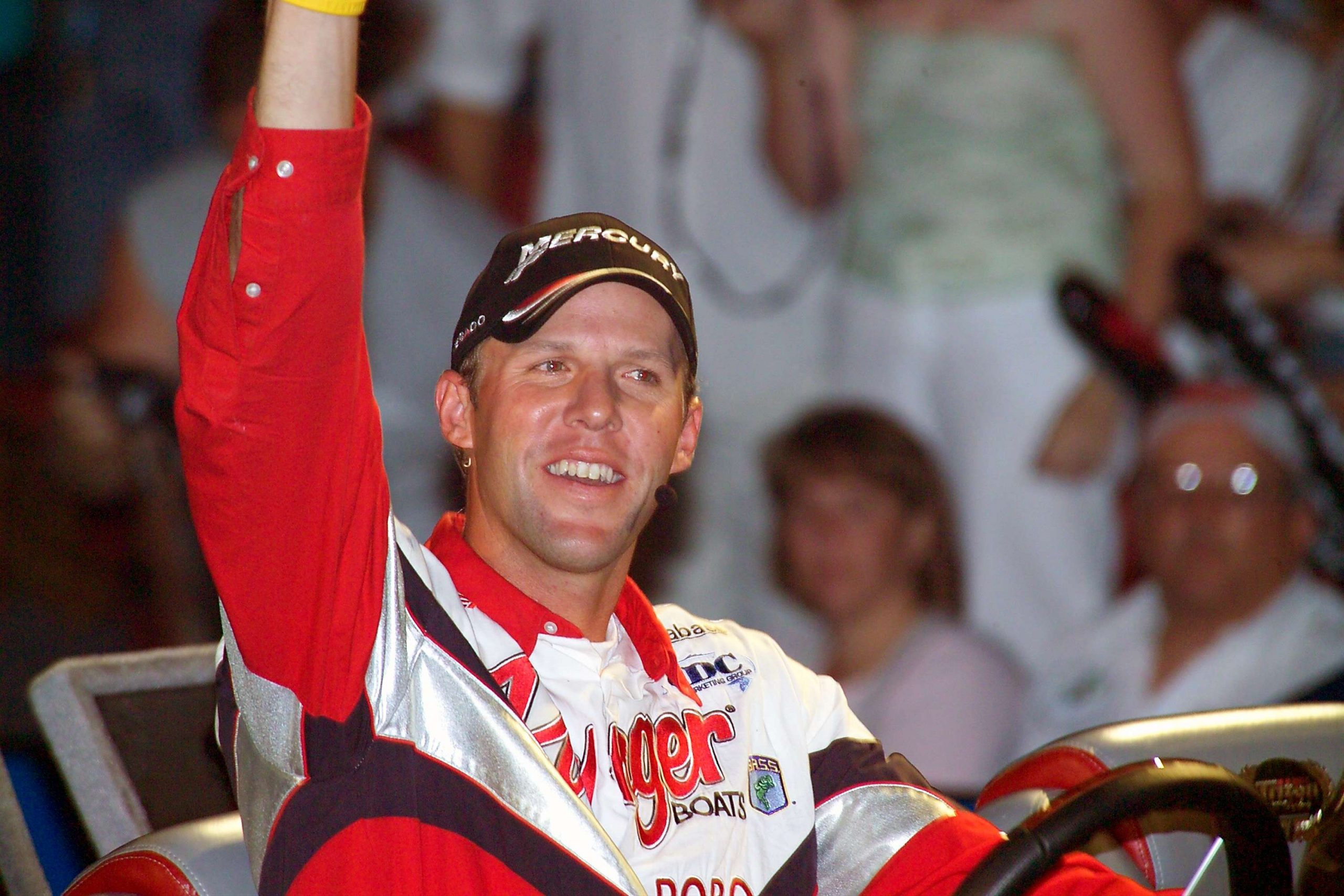
Aaron Martens has never won the Classic, but heâs finished second four times (in 2002, 2004, 2005 and 2011). In honor of those runner-up finishes and his hope and plan to win the big one in 2016, he offered his picks for who he thinks will be his runner-up this year.
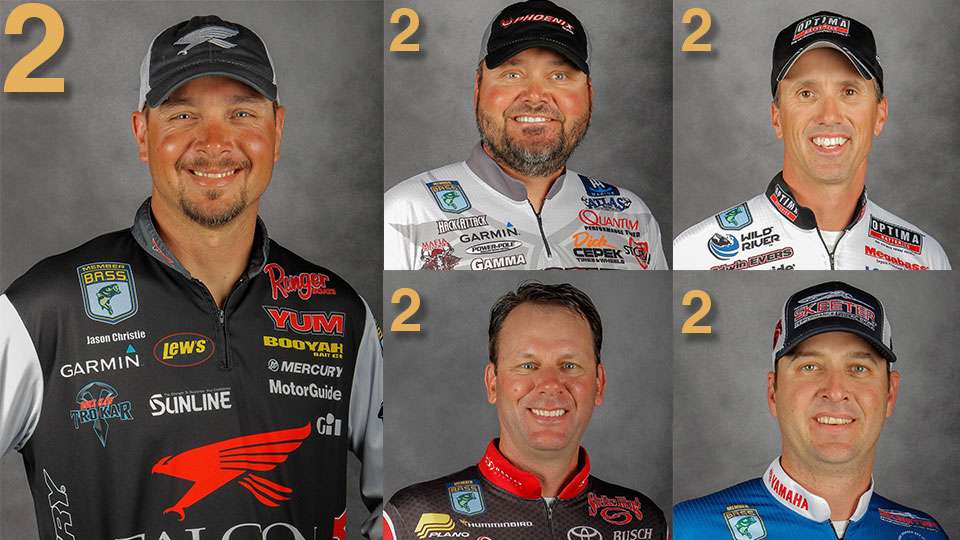
1. Jason Christie
2. Greg Hackney
3. Edwin Evers
4. Kevin VanDam
5. Todd Faircloth
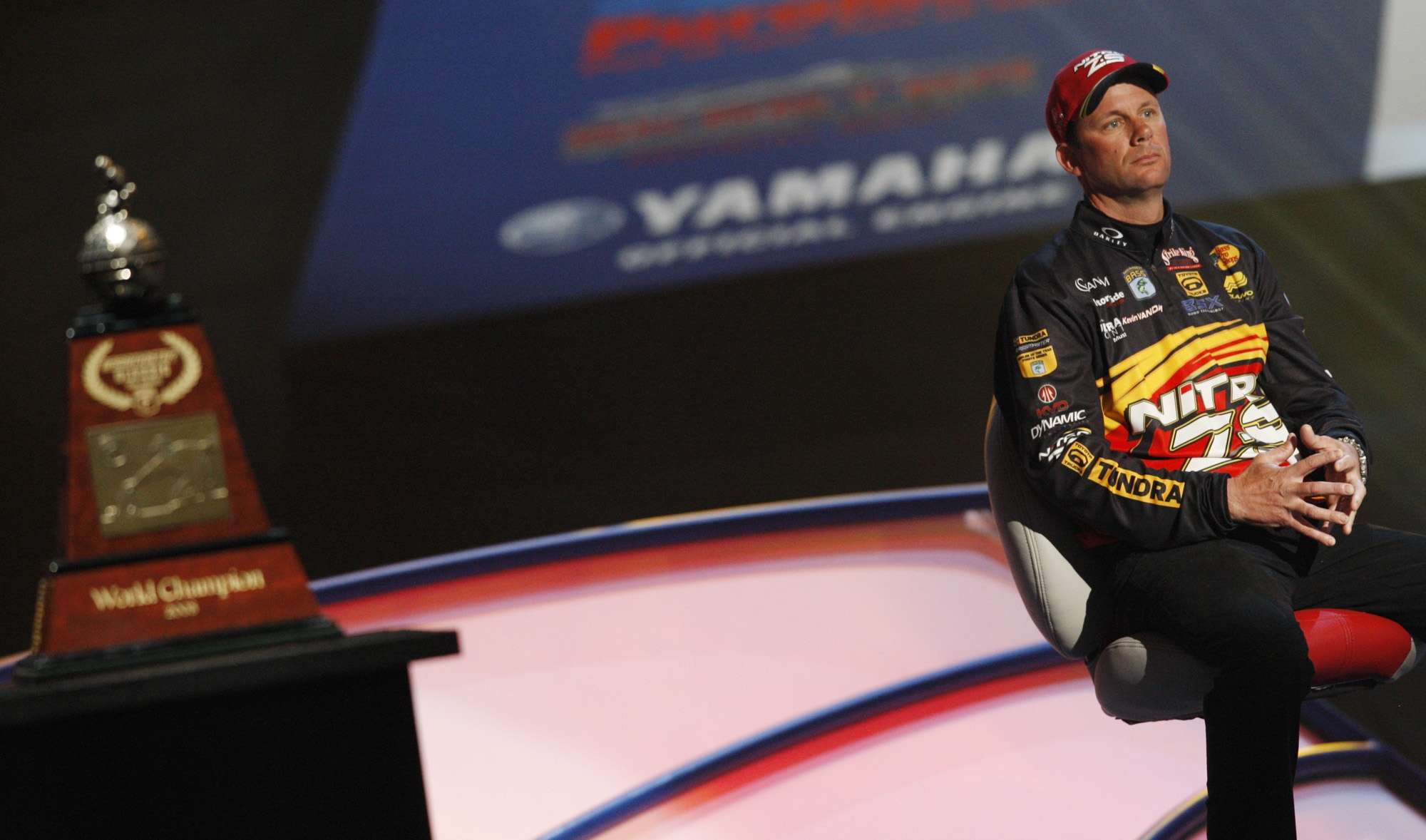
Without counting A-Martâs picks, I tallied the former champsâ votes on likely Classic winners. There were 132 votes in all. Of the 55 Classic competitors, 28 received at least one vote. Hereâs a countdown of the top five.
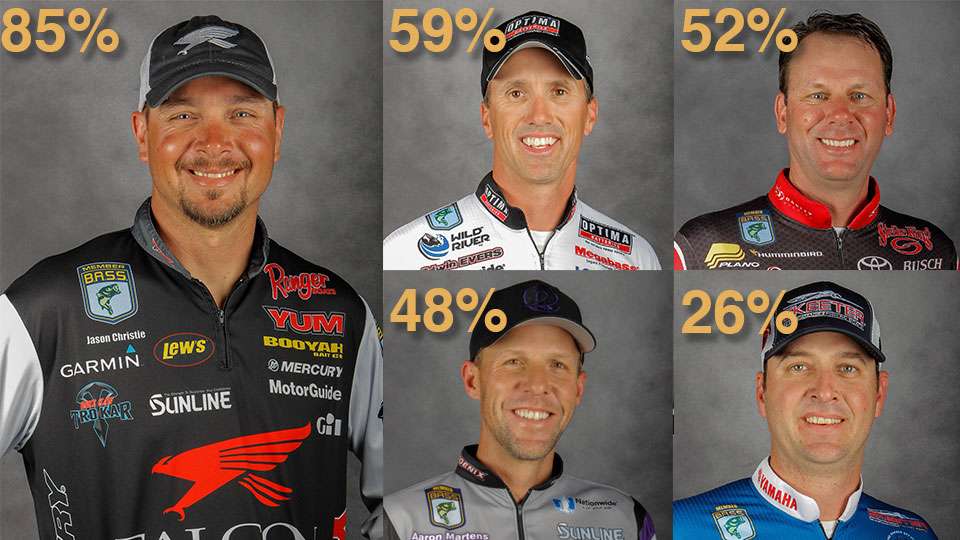
Here are the top five vote getters and the percentage of the former champ ballots they were on:
(1) Jason Christie â 85 percent
(2) Edwin Evers â 59 percent
(3) Kevin VanDam â 52 percent (even though he didnât actually pick himself)
(4) Aaron Martens â 48 percent
(5) Todd Faircloth â 26 percent
In all, 21 qualifiers received multiple votes.
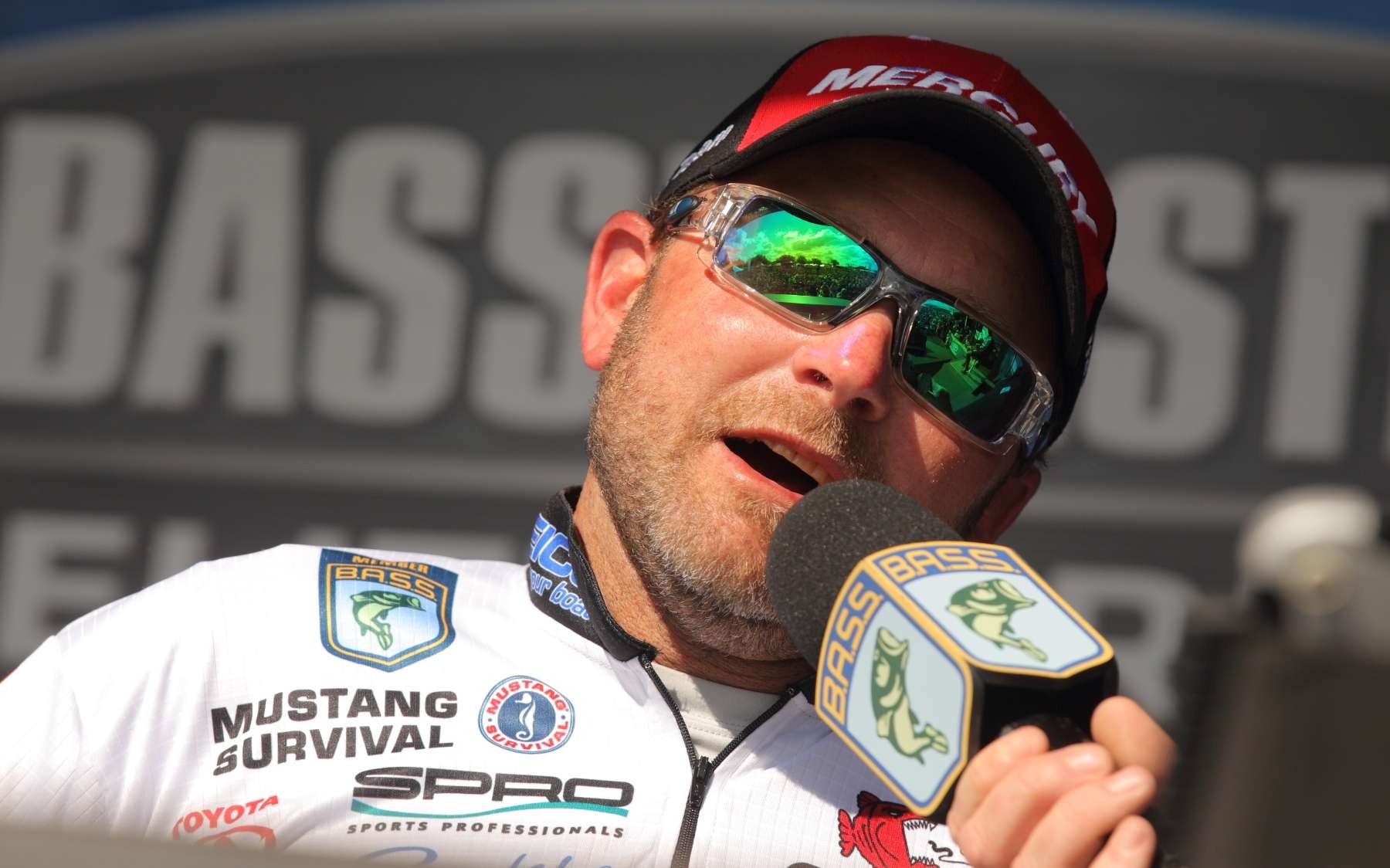
No, Mike McClelland did not qualify for this yearâs Classic, but that didnât stop several former champs from picking him ⦠or trying to. They all like his skill with a jig and patience with a jerkbait. If he had qualified, itâs clear that McClelland would be one of the favorites with the former winners, just as he was with fans and pundits when the Classic was on Grand Lake in 2013 and McClelland finished fifth. Jeff Kriet also got a vote despite not qualifying. Of course, Cliff Pace, who won the last Grand Lake Classic would be a big favorite had he qualified in 2016.
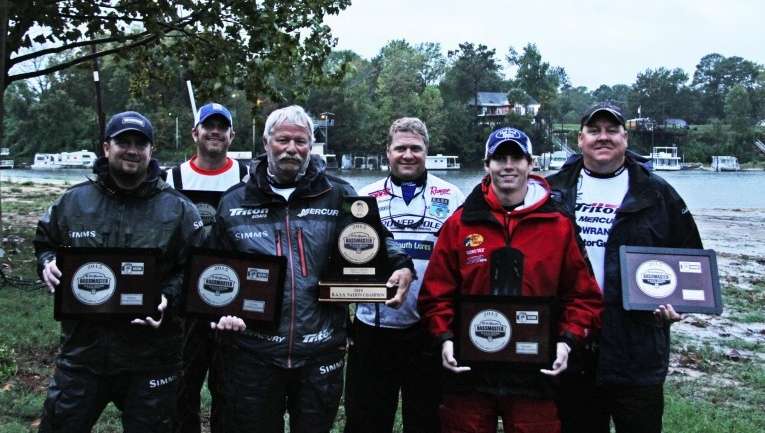
Not every one of the 55 qualifiers got a vote in our survey of the former champs. In fact, almost half did not. Twenty-seven of the anglers fishing the 2016 Classic were not picked among the top five by any of the previous winners. That includes the B.A.S.S. Nation qualifiers, the College Series qualifier and the Team Tournament qualifier. The former champs clearly put a premium on professional experience.
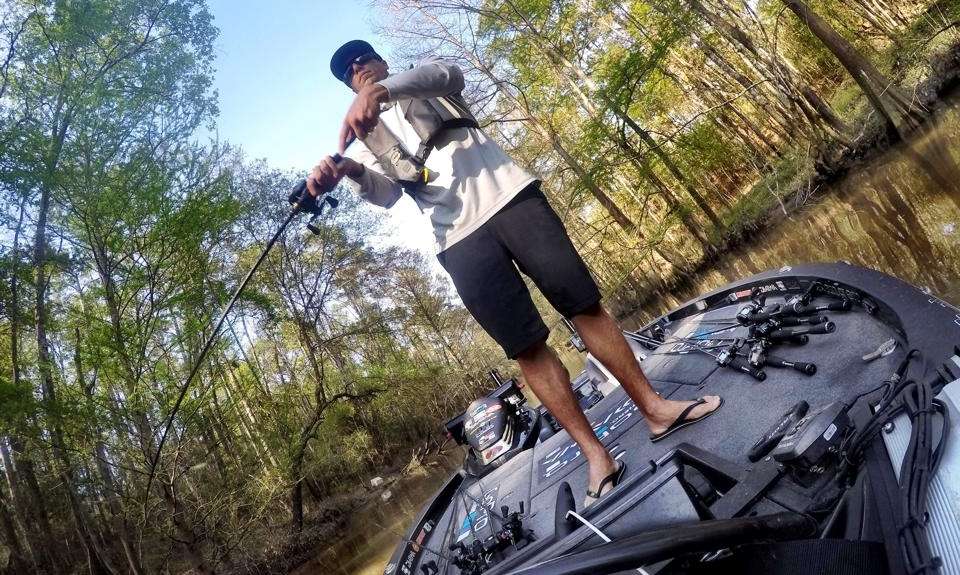
Only three Classic rookies appeared on the ballots of the former champs â Brent Ehrler, James Elam and James Watson â and for obvious reasons. Ehrler is an established pro with impeccable credentials under a variety of conditions all across the country. Elam is a young gun making a name for himself and he lives in Tulsa, so he knows the Classic waters well. Watson was picked by Mike Iaconelli, who said the Missouri pro âhas nothing to lose and believes he can win.â No other rookie got a vote, despite the fact that a rookie has won the Classic eight times â most recently in 2007 (Boyd Duckett).
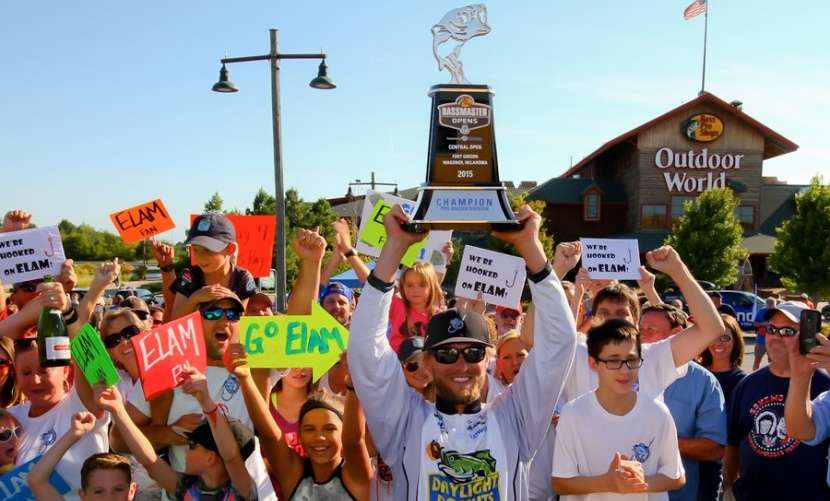
It wasnât until 2007 that an angler living in the same state as the Classic waters won the tournament. Boyd Duckett did it that year, breaking the âhome state jinxâ that seemingly hovered over the event for many years. In the last two years, the locals have made it look easy. Alabamaâs Randy Howell won on Lake Guntersville in 2014, and South Carolinaâs Casey Ashley won on Lake Hartwell last year. The former champs seem to think thereâs a good chance the trend will continue in 2016, making Jason Christie and Edwin Evers the top vote getters. James Elam was also on five ballots.
